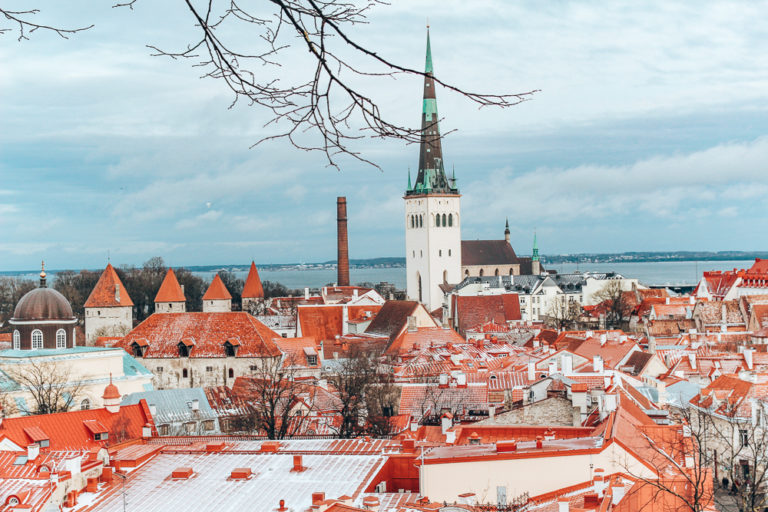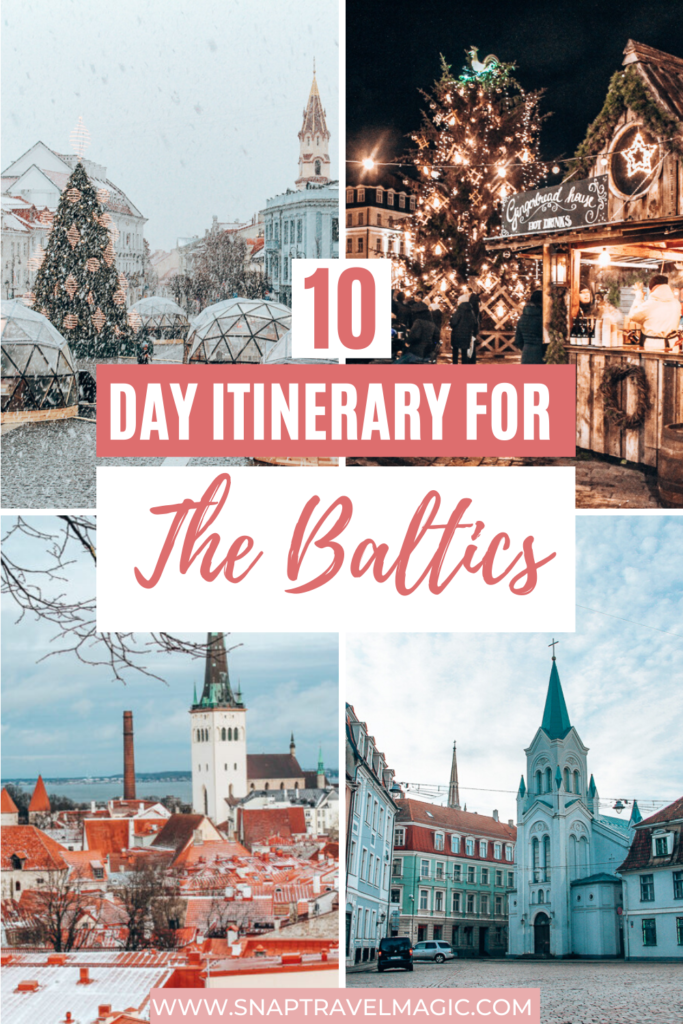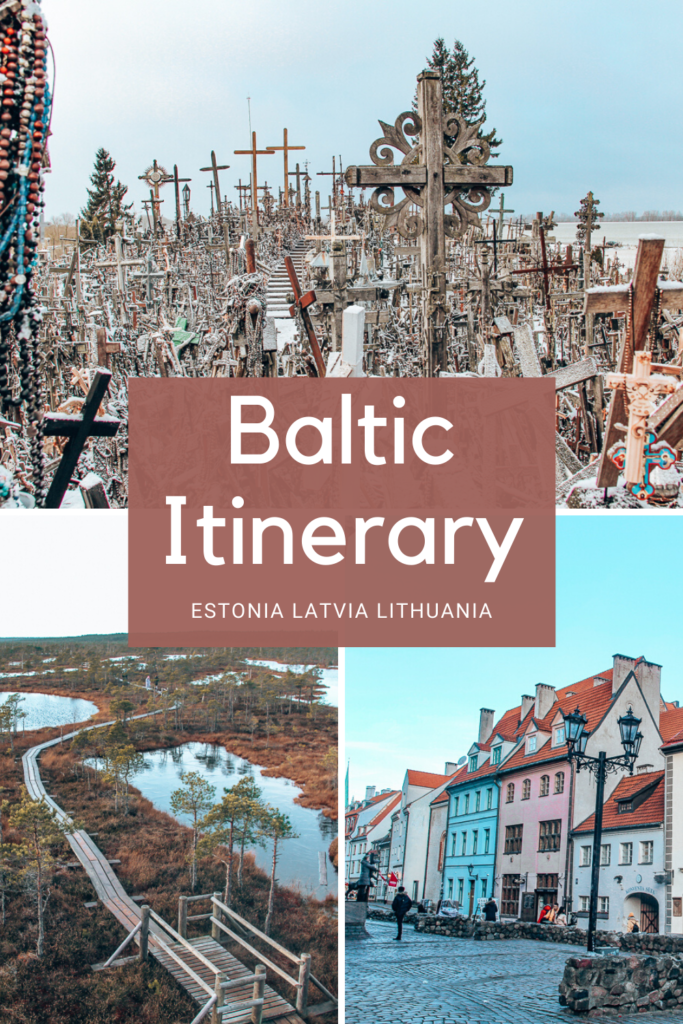When I first visited the Baltic Countries, I felt like I was discovering some hidden gem. Here were three beautiful countries, Lithuania, Latvia, and Estonia, not overtaken by tourism, boasting natural wonders and quaint cities, all for an affordable price. I had less than two weeks to explore all three countries. If you’re short on time as well, here is some information on the Baltics and the perfect 10 day Baltic itinerary.
Disclosure: I only recommend products and services that I have used myself, and that I would recommend to a friend. Some of the links in this article are affiliate links. Meaning, at no additional cost to you, I will earn compensation if you click through and make a purchase.
Table of Contents
Geography
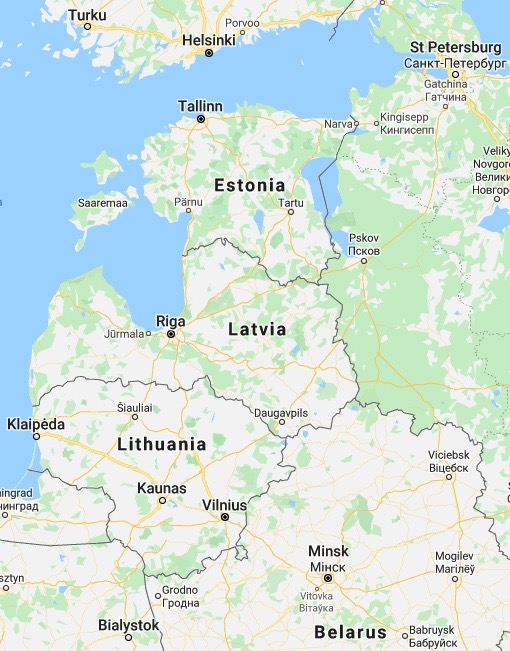
The Baltic states are wedged between the Baltic Sea to the west, and Russia to the east.
Estonia is the northernmost country. North of Estonia is the Gulf of Finland, with Finland (obviously) on the other side of the gulf.
Latvia is in the middle, and in addition to Russia, shares a border with Belarus.
Lithuania is the southernmost Baltic country, and only shares borders with Poland, Belarus, and the Baltic Sea.
History of the Baltics
Because of their location, the Baltic states have had a tumultuous history.
Numerous powers, including the Danes, Swedes, Poles, Germans, and Russians, tried to take over Latvia and Estonia because of their ports for centuries.
Lithuania used to hold a lot of territory in Europe until the 16th century when it became part of the Polish-Lithuanian Commonwealth
In the 18th century, Imperial Russia took control of all three countries. But, after the collapse of so many governments following World War I, all three countries got their independence in 1922.
But then, WWII happened in 1940, and the Baltic countries were under the control of the Soviet Union.
All three regained their independence in 1991. And are now part of the European Union.
Culture
Most Lithuanians identify as Roman Catholic, around 3/4 of Latvians identified as Christian , and in Estonia, over 50% of the population states no religion.
With that being said, Pagan roots do run deep in the Baltics. Lithuania was the last country in Europe to convert to Christianity.
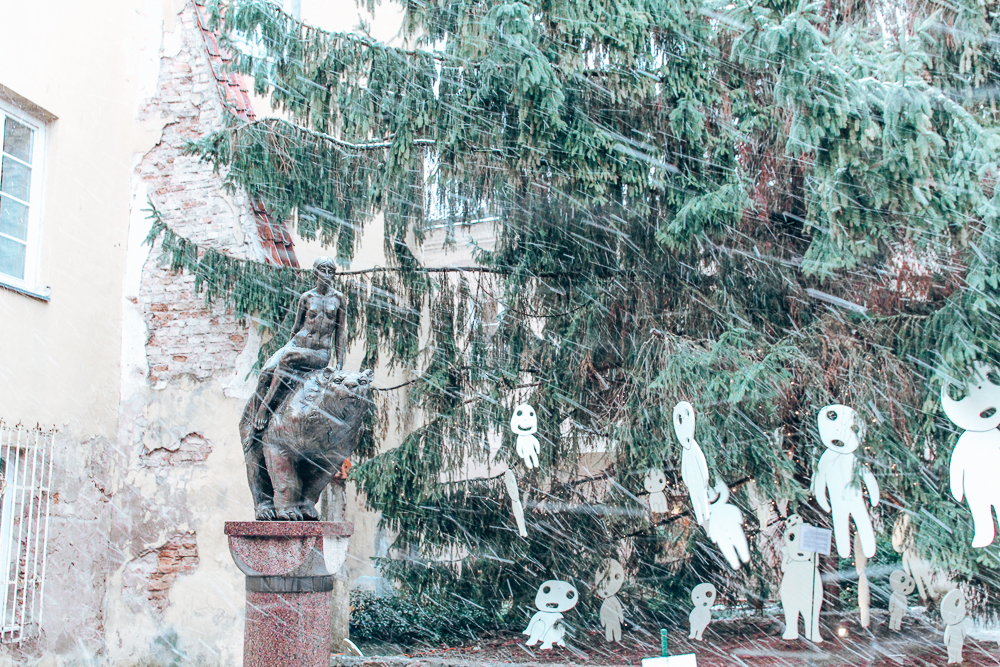
More and more people in the Baltics are turning away from Christianity and embracing their Pagan roots. All three Baltic countries celebrate winter and summer solstice. People build bonfires, sing songs, and wear masks.
Folklore, singing, and dancing are also important in Baltic culture, as is a deep appreciation for nature. There are sacred groves in Estonia, graveyards dispersed among the forests in Latvia, and our guide in Lithuania told stories of spirits in little wooded corners in Vilnius.
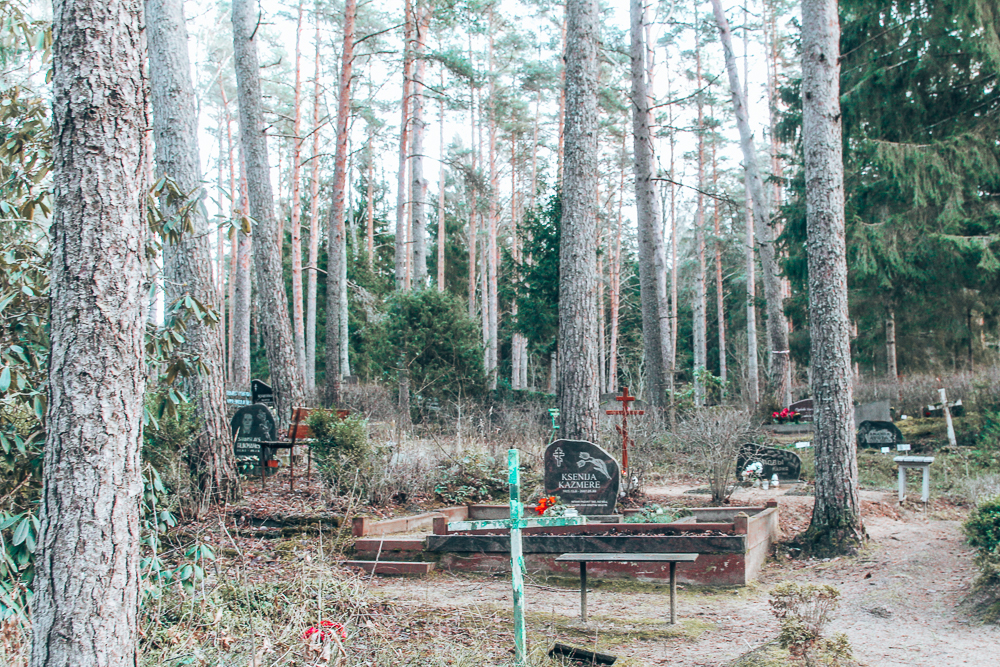
Official Languages
Each country speaks a different language, Estonians speak Estonian. A language greatly influenced by the Finnish language.
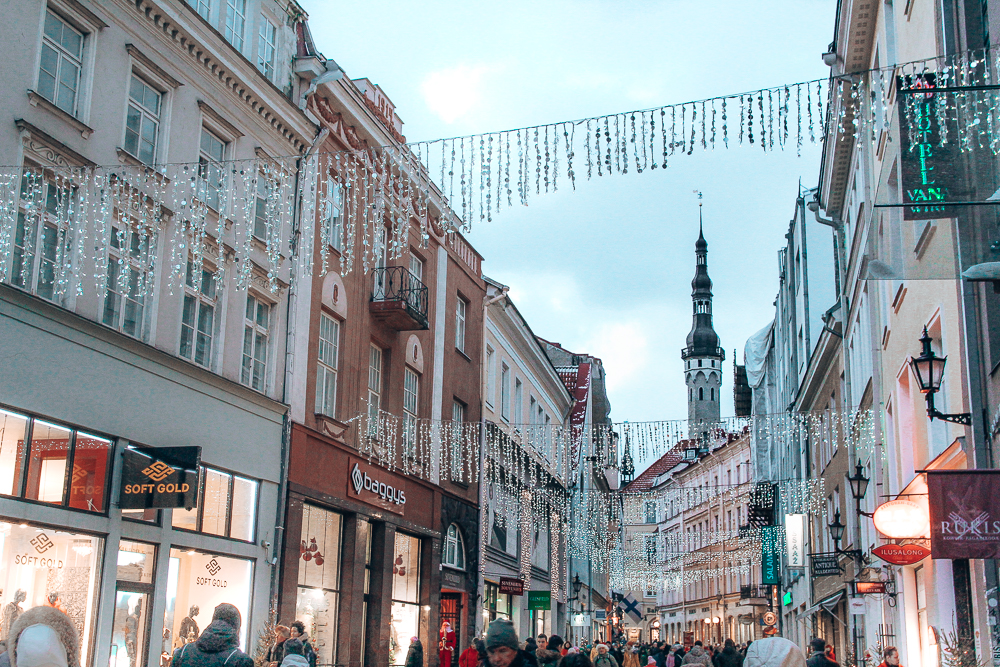
Lithuanians speak Lithuanian, and Latvians speak Latvian. Both are Indo-European languages.
Lithuanian is the closest language on the planet to Sanskrit. Which is pretty neat.
English is widely spoken by people, especially younger people, in cities. In more rural areas you may have a harder time finding people who speak English. Most everyone at tourist destinations can speak a little bit of English.
Are the Baltics Safe?

All three countries are extremely safe. According to the US Department of State Lithuania, Latvia, and Estonia all have a travel advisory of Level 1 (the lowest level).
Of course, normal precautions should be taken. And more crime takes place near bus stations, train stations, and popular tourist spots. Most crime involves pickpocketing or robbery. This is the same in almost every European, nay, every city around the world.
Be smart, take normal precautions, and you will be fine.
The Best Time to Visit Latvia, Lithuania, and Estonia
Because of their geographical location, Baltic countries have very short days in the winter, and longer days during the summer.
This makes summer a great time to visit the Baltic countries. May-September will give you great weather, even though you may see a few more tourists. If you visit during summer, expect mild temperatures around 70 degrees Fahrenheit and 21 degrees centigrade.

The winters are long, and cold. We visited all three countries during the winter, and the snow and Christmas markets were quite magical. But, it was dark by 3:30-4 pm. We spent a lot of time wandering in darkness. And it was cold. The temperature frequently drops below 30 degrees Fahrenheit or 0 degrees centigrade. Make sure you bring hats, scarves, gloves, and warm clothes if you visit during the winter.
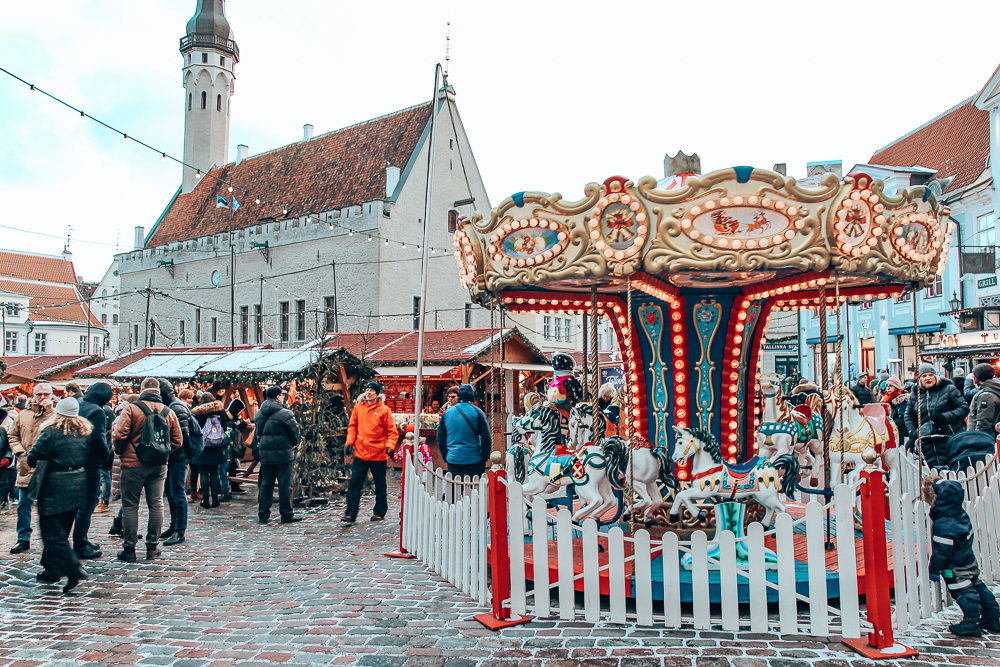
Unless you specifically want to see the sites in winter (which are quite spectacular) come to the Baltics during the summer to get the most out of the daylight!
Baltic Currency and Cost
All three countries use the Euro as their official currency, which makes traveling between them a breeze.
Use a travel credit card with no international transaction fees. Most places accept credit cards, including shops and restaurants. Some local farmers markets and such will only take cash.
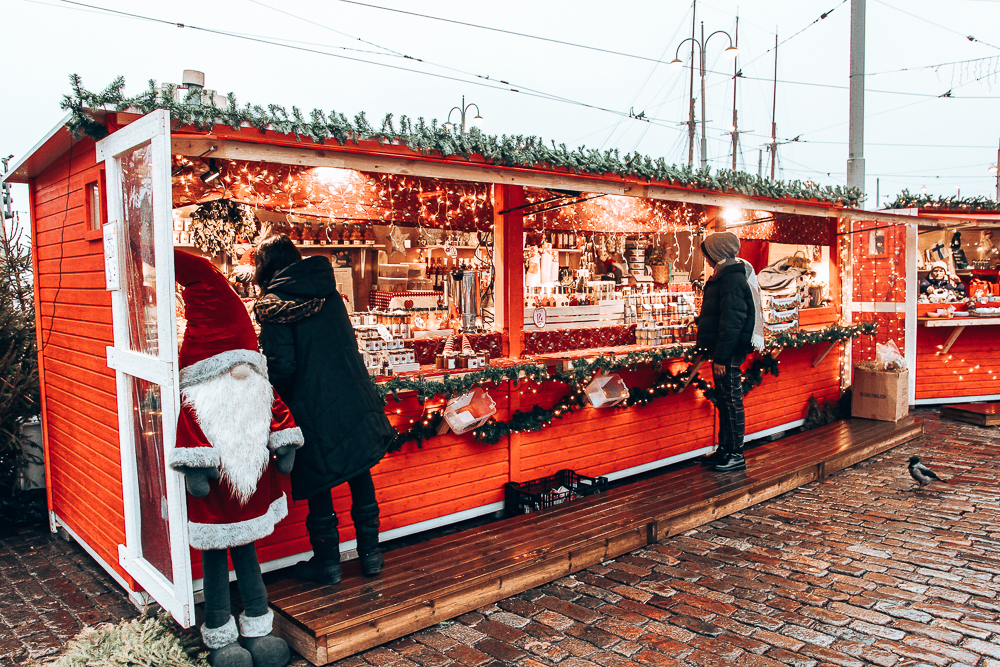
Use an ATM to take out money, they are plentiful in cities throughout the Baltics. If your bank charges a fee, take out large sums of money, that way you don’t pay as many fees. Make sure to let your bank know you will be traveling before you leave your home country!
As far as the costs, everything in the Baltics is relatively cheap, from food to hotels. Lithuania is perhaps the cheapest country, and Estonia the most expensive. Either way, a trip to these places will not break the bank.
Getting There
If you’re flying, you will want to fly into a major city to save yourself some time and money. I recommend flying into Vilnius, Lithuania, or Tallinn, Estonia. This way, you can complete your Baltic itinerary from north to south, or south to north.
My Baltic itinerary, will focus on a north to south itinerary, starting in Tallinn and ending in Vilnius.
Remember, you can always find a larger city in Europe and then take a train or a cheap flight into either Tallinn or Vilnius. I recommend using the hopper app to locate cheap flights or Skyscanner.
Getting Around the Baltics
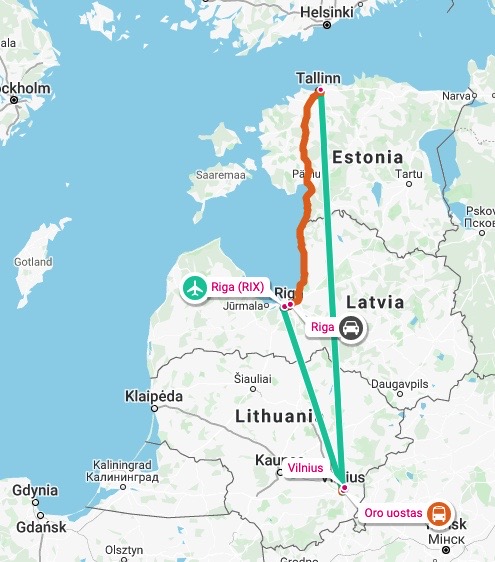
I highly recommend renting a car. It is very easy to drive in the Baltics, and a car rental will allow you to see more of the countryside. We rented a car for 10 days and it costs about 200-275 euros.
Make sure you choose hotels with parking included so you don’t pay extra fees! Also ensure you have an international drivers license. No one ever asked to see ours, but just in case, have one with you if you choose to rent a car.
If you do not want to rent a car, you can take a bus. Ecolines and Lux Express are two bus lines that operate in the Baltics. Prices are around 20 euros between cities.
You can also take a train. There is no direct train from Tallinn to Riga, but you can get there with one stop.
Or, you can fly between cities using Baltic Air.
Getting Around the Cities
In most of these places, walking will be more than sufficient.
Public transport such as busses, trolleybuses, and trams are available in all three cities.
Uber is prevalent in Tallinn and Vilnius and is very affordable and convenient. Uber is not available, however, in Riga. But, you can download the app Bolt, very similar to Uber, and use that instead.
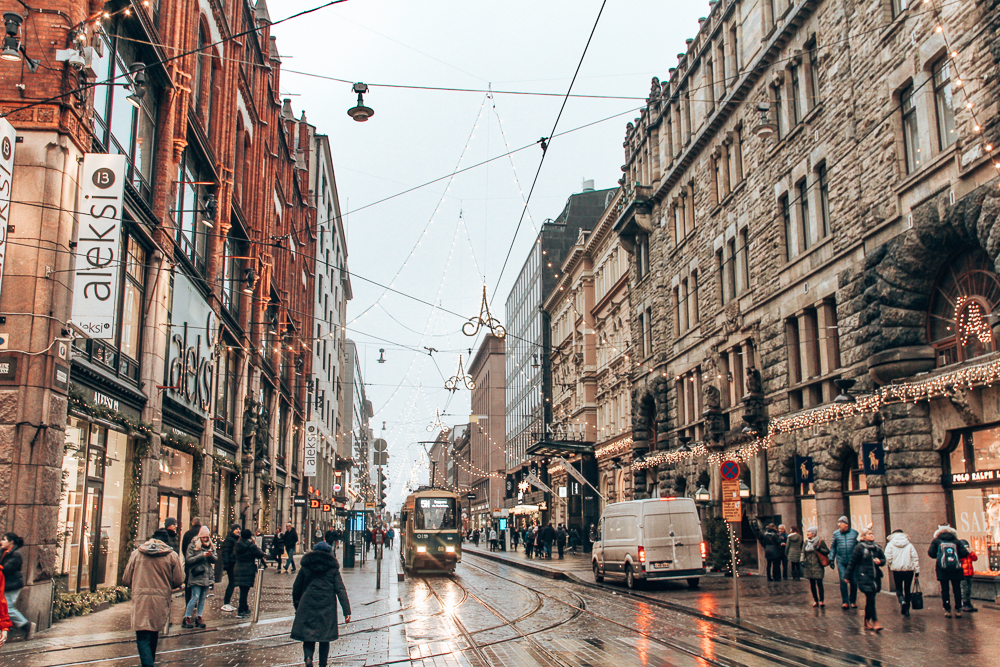
Don’t Forget the Beaches
Although this Baltic itinerary focuses mainly on the cities and interior of the Baltic countries, don’t forget about the wonderful Baltic sea that runs the coast of all three countries.
If you visit during the summer especially, make sure to add a day trip to your Baltic itinerary to see a gorgeous beach. Here are 7 of the most beautiful Baltic beaches for you to get some ideas!
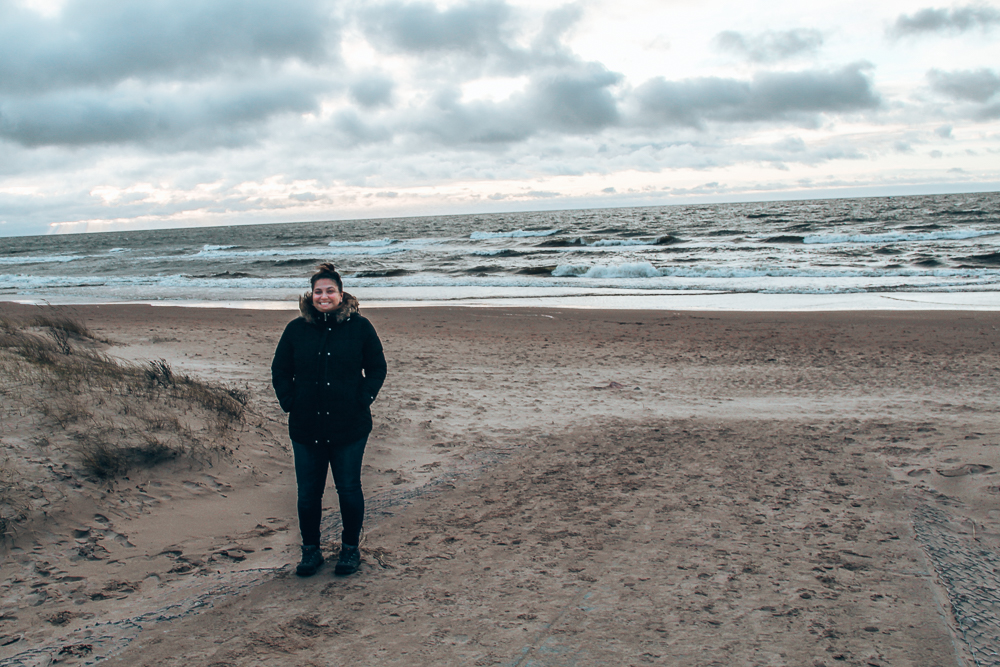
My 10 Day Baltic Itinerary
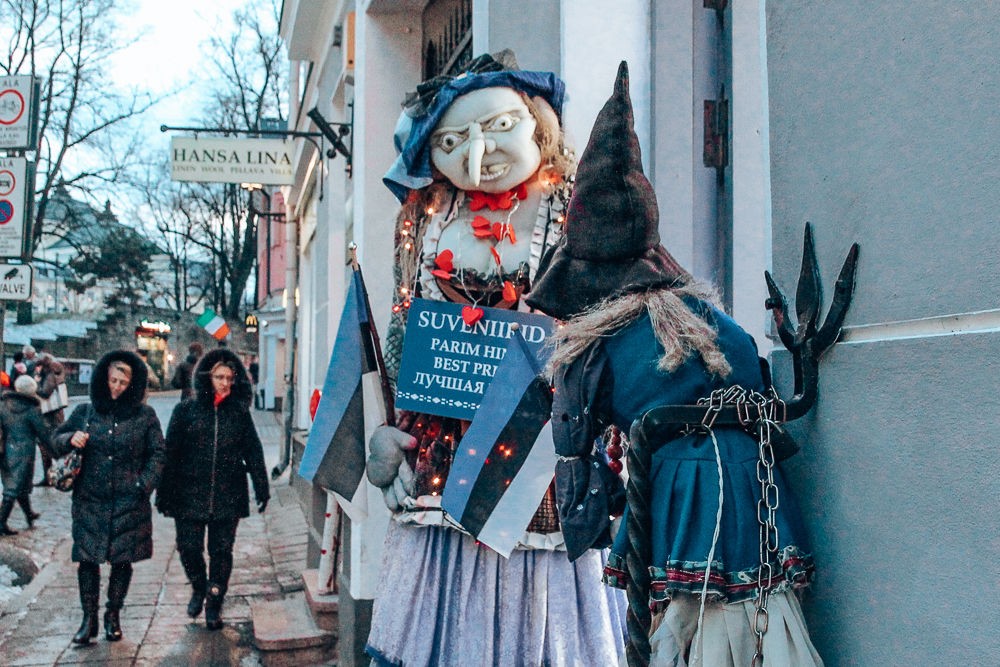
- Day 1-4 Tallinn
- Optional Day Trip to Helsinki
- Other Options for Day Trips
- Day 5-7 Riga
- Optional Day trip to Kemeri National Park
- Other Options for Day Trips
- Day 8-10 Lithuania
- Optional Day trips to Trakai Castle/Panamune Road/Hill of Crosses/Ninth Fort/Kaunus/Devils Museum/WItches Hill/Grutas Park
- Other Optional Day Trips
My Suggestions for Your 10 Day Baltic Itinerary
To make the most out of your Baltic itinerary, I suggest you spend about 1-2 days in each capital city (Tallinn, Riga, and Vilnius). This will give you enough time to see most of the major sites.
After your days in the city, take 1 day trip in each country.
Countries are most than just their cities. And there are some pretty awesome day trip suggestions on this Baltic itinerary!
10 Day Baltic Itinerary Day 1-4: Tallinn
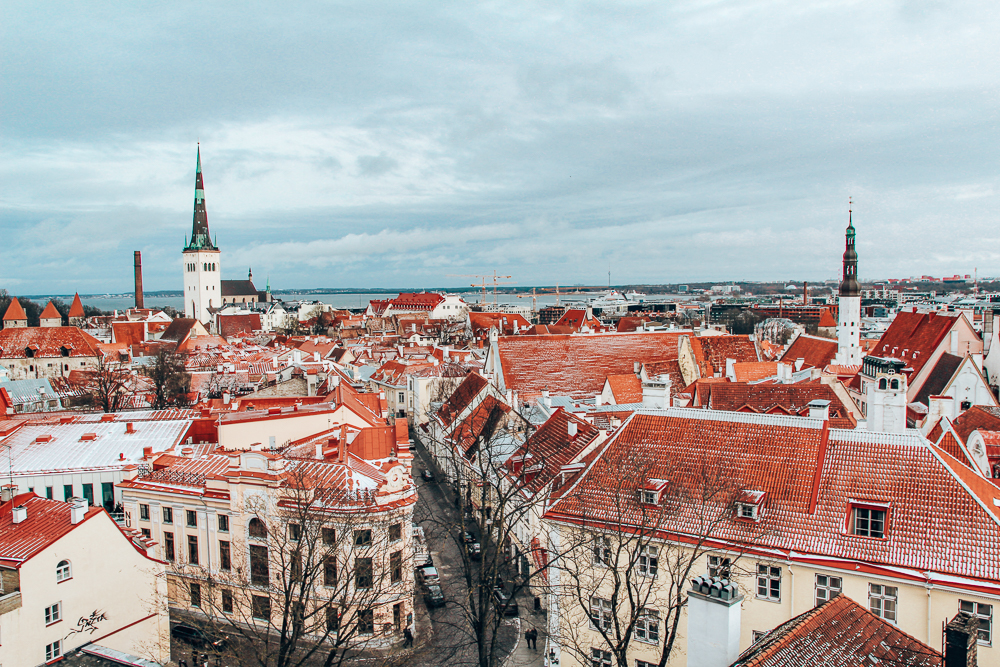
Start your Baltic Itinerary in Tallinn (note, you can also start this Baltic itinerary in Vilnius and work your way north, just reverse the cities!) When you first arrive in Estonia, you’ll probably think that you’ve arrived in Finland. The nordic vibe is strong here, and the minimalist architecture of the houses and buildings outside of the city center will have you imagining Scandinavia.
I found the people to be quite reserved and a bit blunt, but still polite.
When you arrive in Estonia, grab an Uber to your hotel. You will most likely be arriving late to the city.
Where to Stay in Tallinn
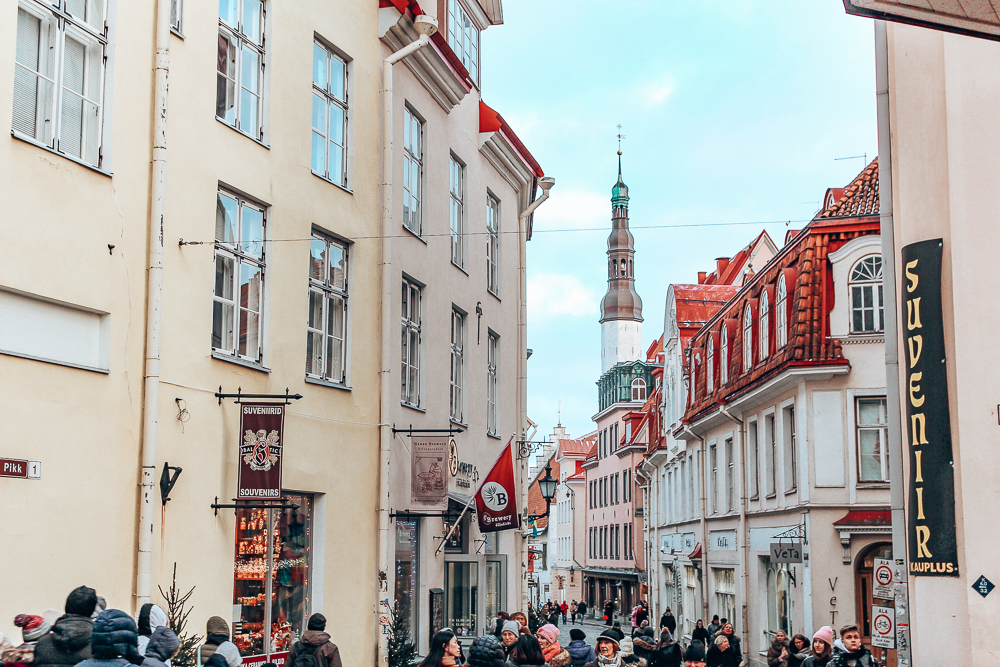
Try to stay as close to the Old Town as your budget will allow.
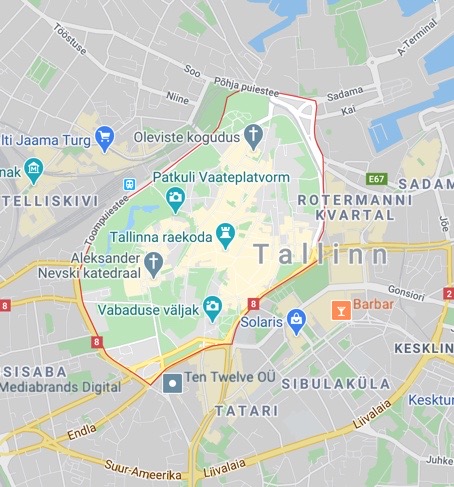
We stayed a bit outside of the center because of our budget. We got ubers into the city center for 5 or 6 euros. So it was not a big deal.
Grab a bite to eat when you arrive. I recommend asking the front desk for a good place to eat close to your hotel. After your meal, take a stroll through the beautiful Old Town of Tallinn.
Walking Tour
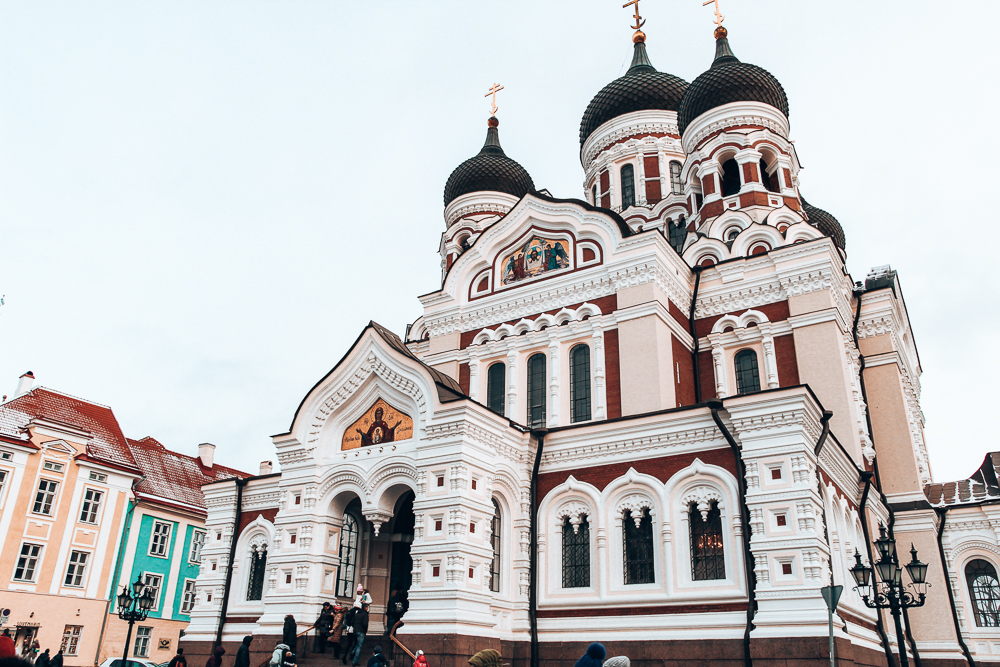
On your first full day of Tallinn, take a walking tour. I recommend the Tallinn in a Nutshell Walking Tour or Tallinn Free Walking Tour.

Both tours will give you a great history of Estonia, and cover the major sites of the city including:
- Nevsky Cathedral
- St. Mary’s Church
- Town Hall Square
- Freedom Square
- City Wall Towers
Make sure you tip your guide!
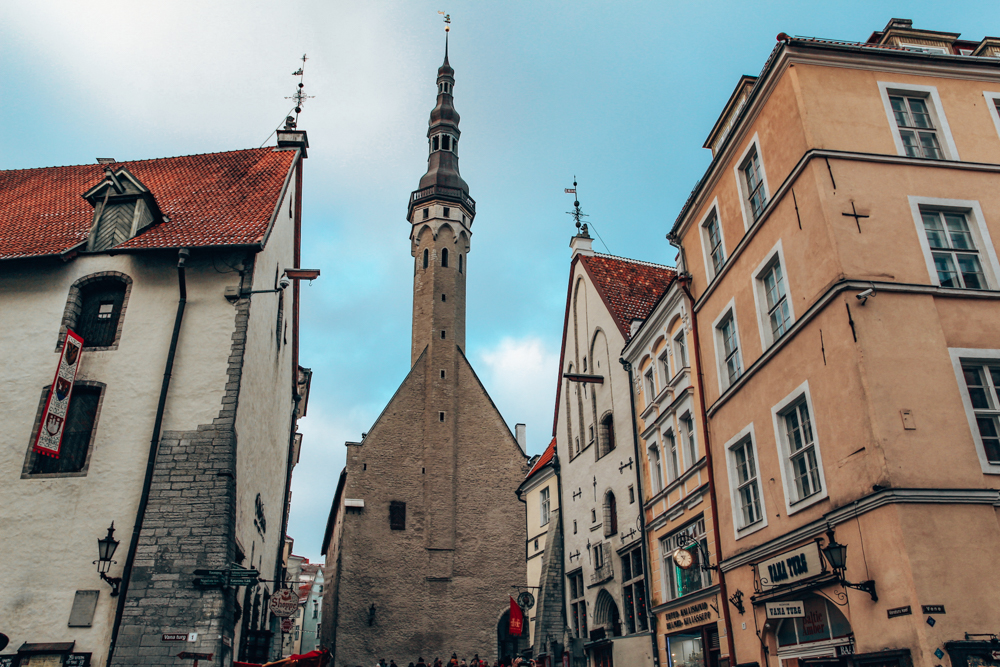
The tours are usually about 2-3 hours long, combine that with breakfast and lunch and you’re looking at a half-day activity. We took some time after our tour to wander around more back streets in Tallinn.
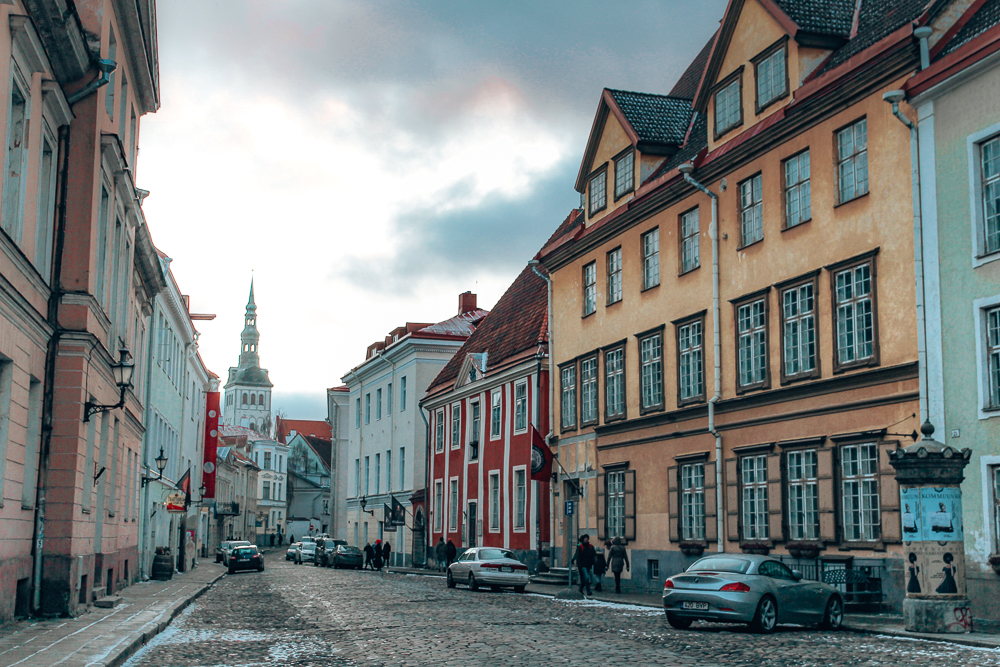
The Times We Had Sign
Our tour led us to The Times We Had Sign on the viewing platform. If for some reason they don’t, here is a great blog that will tell you how to arrive at the sign. Make sure you snag a picture and take in the view!
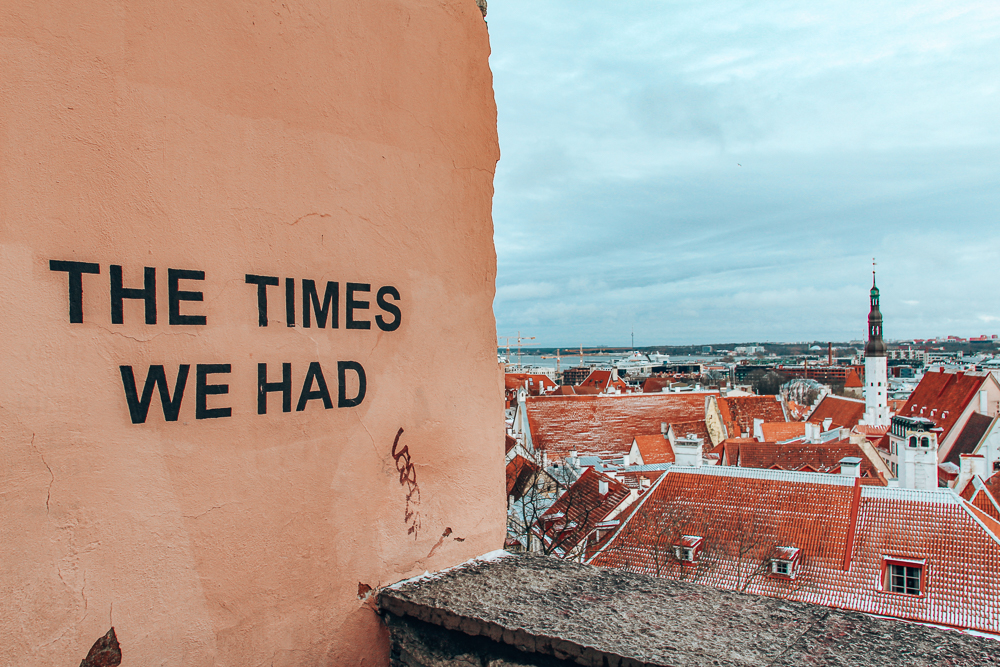
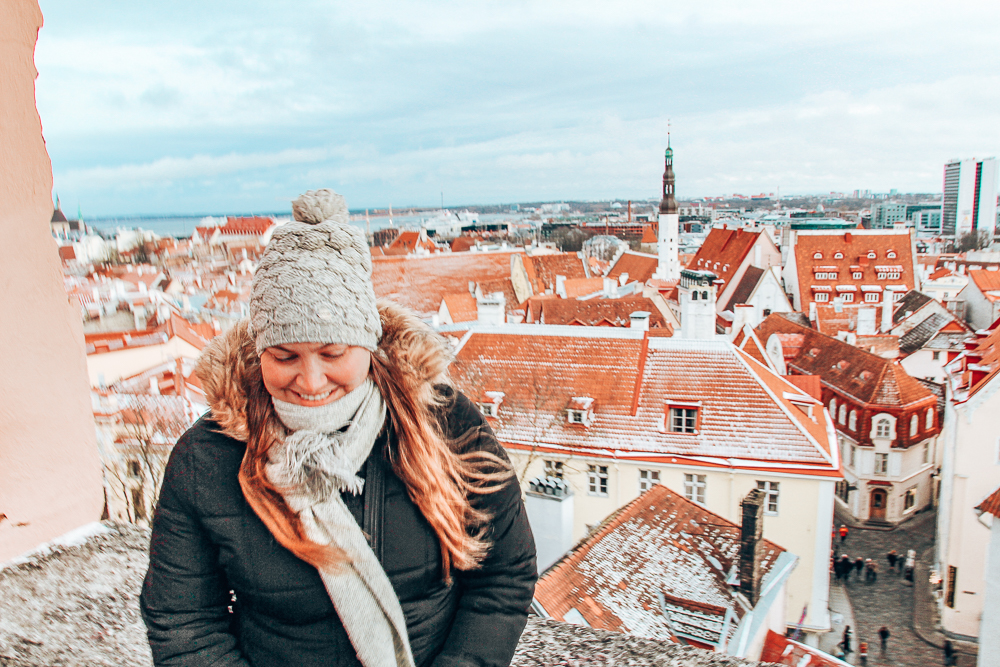
Christmas Markets (Mid November through First Week in January)
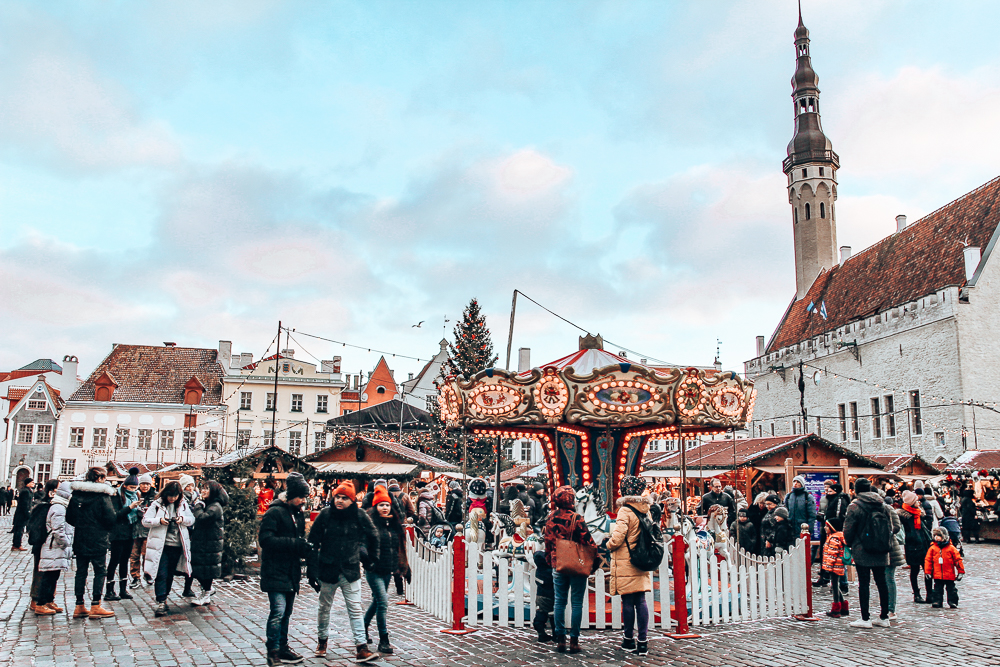
If you go in late December or early January (like we did) make sure you check out the Tallinn Christmas Market in Tallinn’s Town Hall Square.
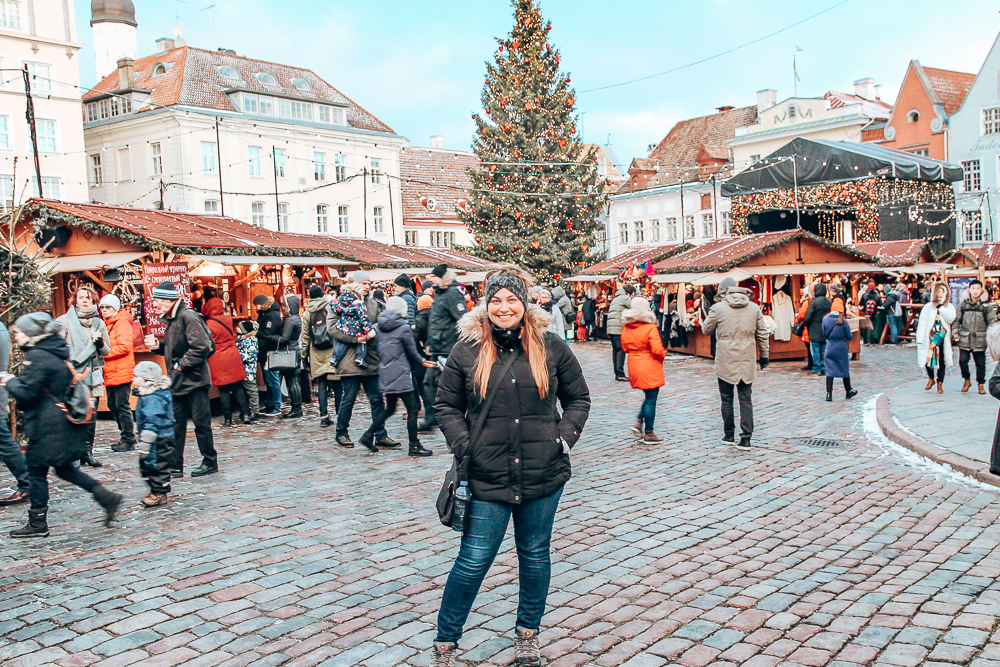
It is magical. You’ll get to sample great food, wine, treats, and shop for souvenirs, clothing, and jewelry as you wander between the booths.
Shopping and Wandering
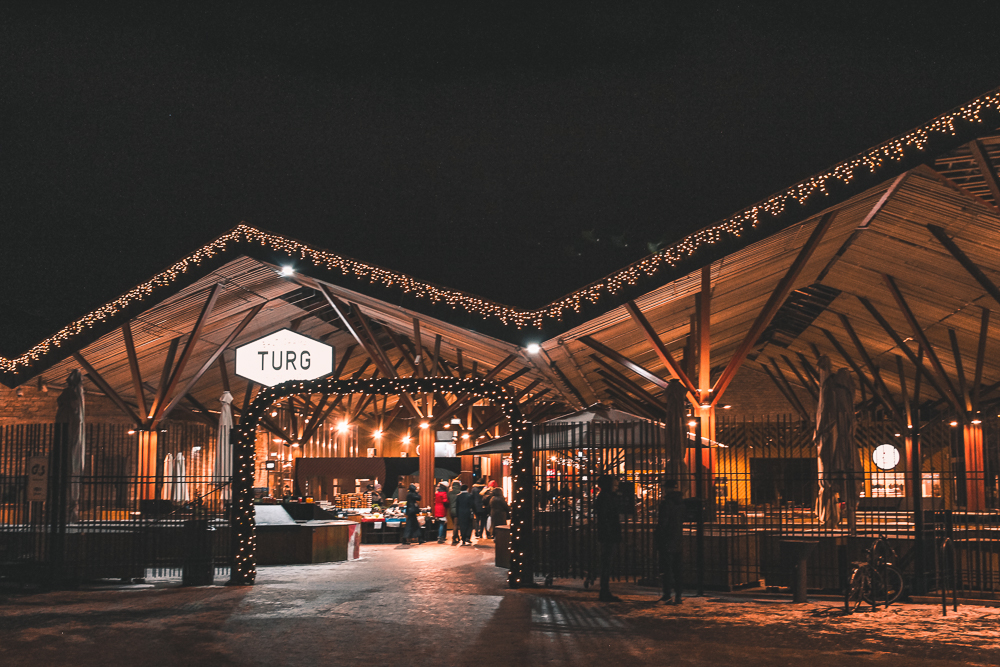
The Balti Jaama Turg Market is a must-do in the city! Don’t miss the Turg market. This market is wonderful for grabbing some food and doing a little bit of shopping!
Go to Telliskivi Creative City for a bit of cool street art.
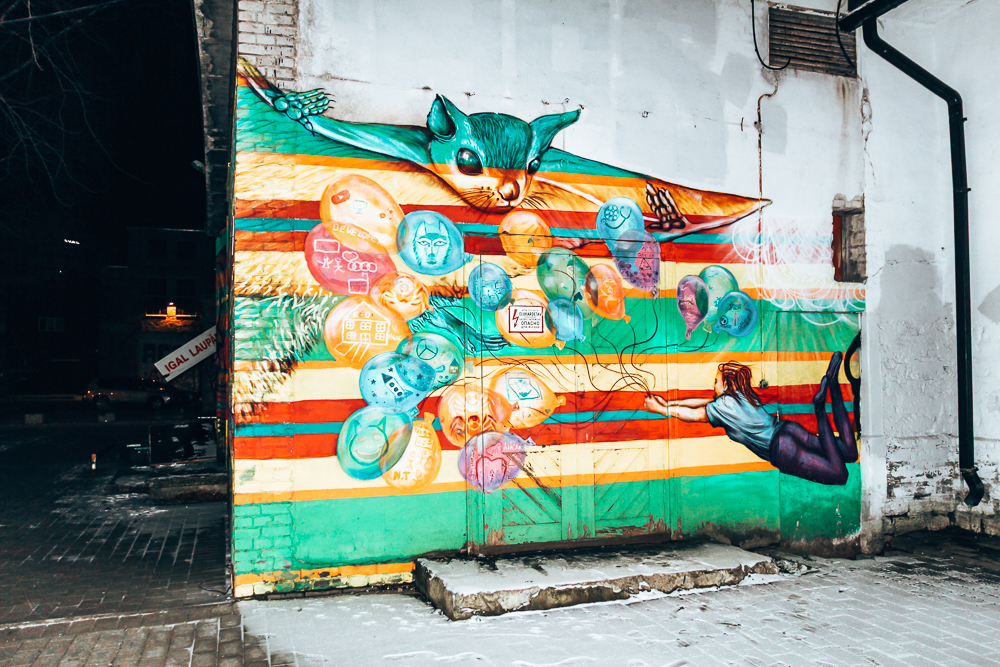
There are also some awesome bars and restaurants to explore in this part of town!
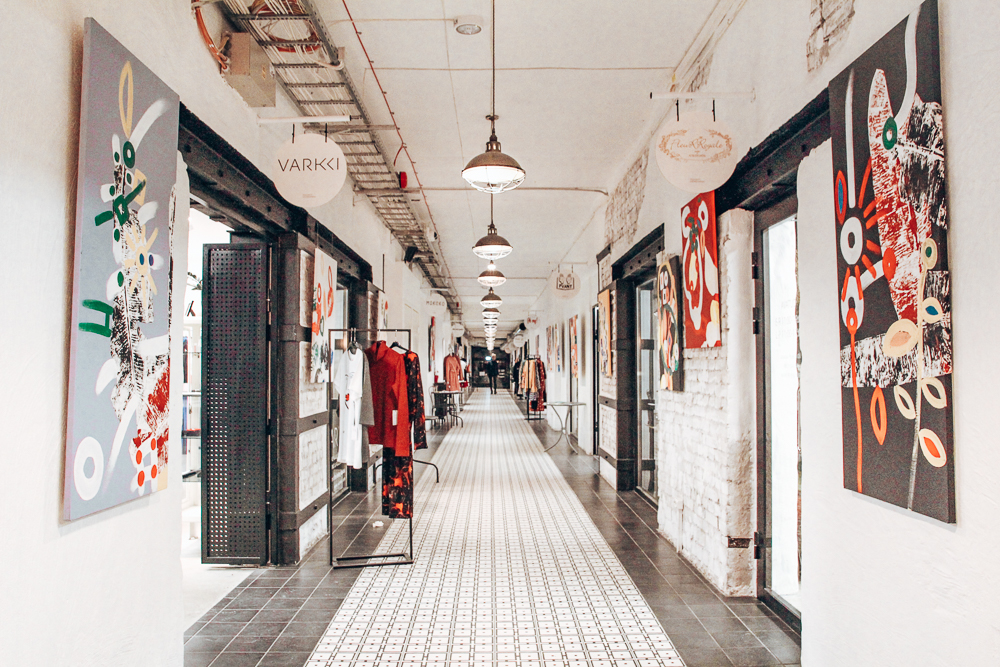
Sauna
Sauna and spa culture is readily apparent in Tallinn. If you visit during the cold winter months, this is a great way to warm up!
Check out this website for some of the spas in Tallinn.
Eating
Our Favorite restaurant in Tallinn is F-Hoone. Our favorite part of the meal was getting to break the creme brulee.
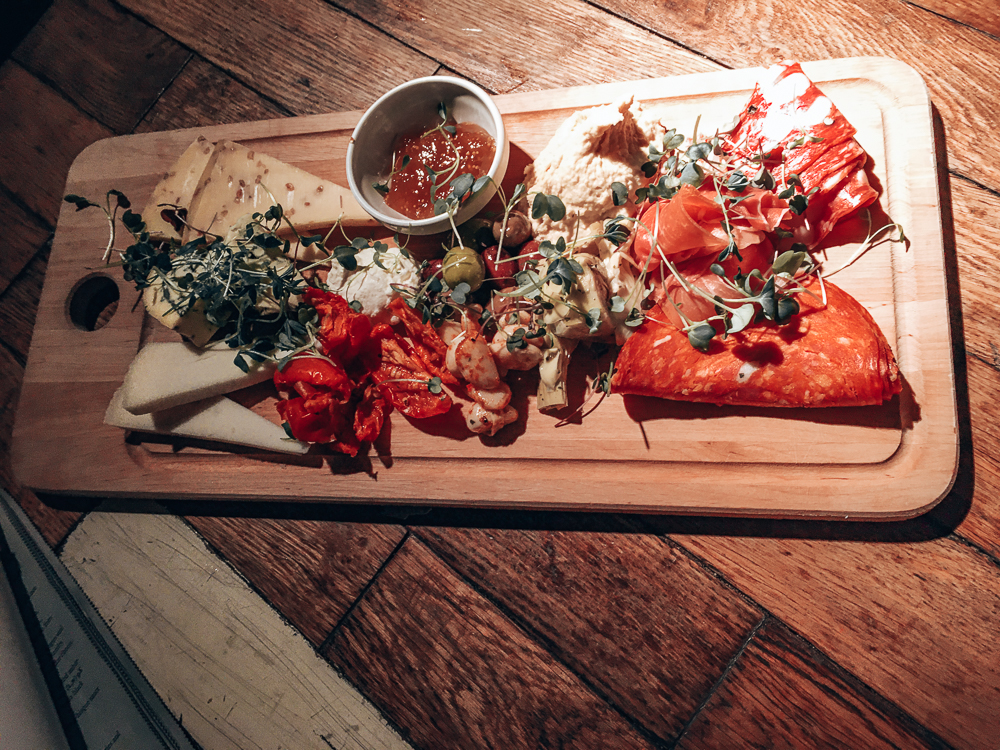
The Creative City has tons of cool restaurants and bars. Wander around and find your favorite!
Museums
Seaplane Harbour is a popular museum in Tallinn. The museum houses old submarines and ships. The KGB museum explains the history of the KGB in Estonia, make sure you book a tour in advance!
Other museums include Kumu art museum, Niguliste Museum, Peter the Great House Museum, Kiek in de Kok and Bastion Passages Museum, Marzipan Gallery, and many more.
Glehn Park and Estonian Open Air Museum
If you want to see a few sites just outside the city, these two attractions are good options. Getting to the Estonian Open Air Museum by car is quite easy with a GPS. You can also take bus 21 or 21B to get to the museum.
The Estonian Open Air Museum depicts life on a farm during the 18th to 20th centuries. It was closed when we went but we still got a little bit of a view over the fence.
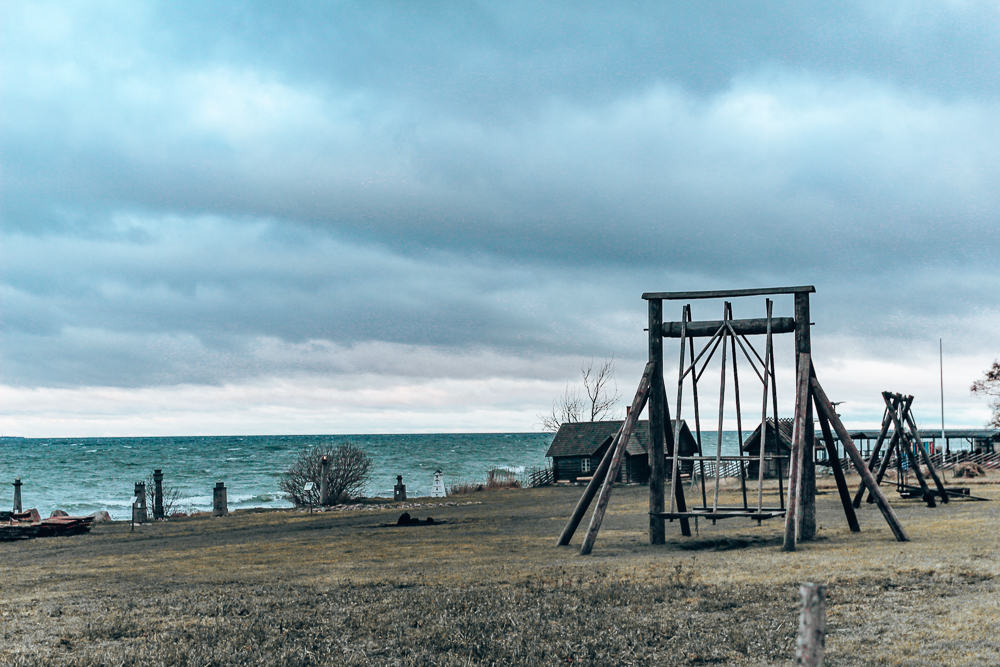
We also drove to Glehn Park to admire some statues. Bus 10, 20, or 20A will get you to the park.
You can take the Glehn Park Loop which is about 1.5 miles long. The statues are quite neat.
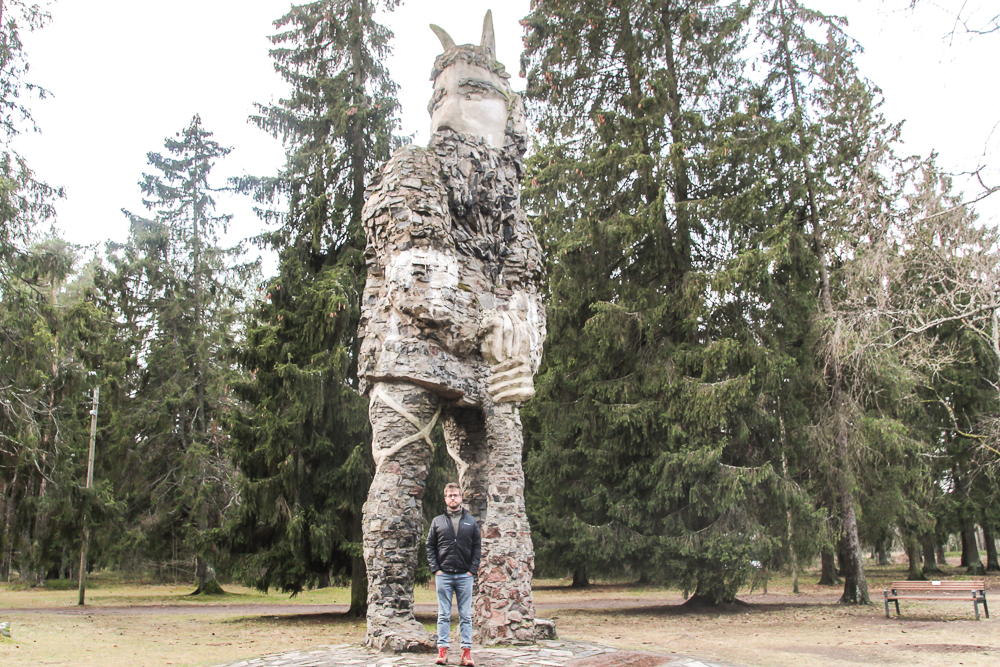
The main statue is a depiction of Kalevipoeg, a hero in Estonian Folklore.
Optional Day Trip to Helsinki
Around two days is sufficient to see the main sites and explore a bit of Tallinn. Take another day and get out of the city on a day trip!
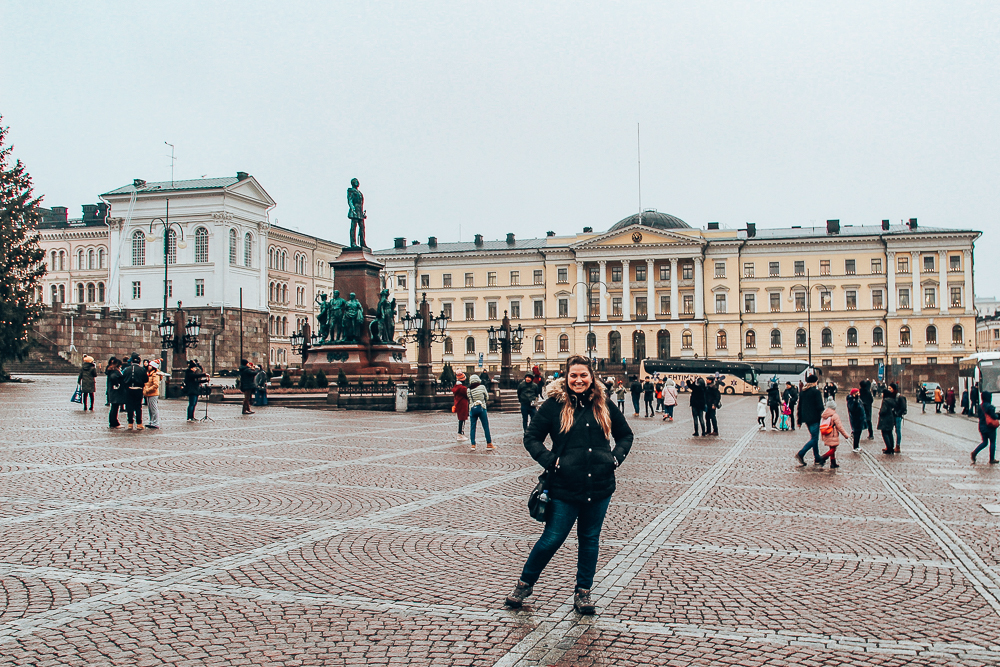
We highly recommend taking a ferry to Helsinki! And spending the day in another country. We took the first ferry out, and the second to last ferry back (the next day had a long drive so we didn’t want to get back too late.) Check all of the ferry times and get your tickets here.
You can take a quick Uber to the dock from your hotel, make sure to arrive a bit early.
The ride takes about 2.5 hours, and it is rough.
I was sweating and seasick for the entire trip. The boat has no seasick medication on board (believe me, my boyfriend checked.) If you do get sick easily, a lower deck is better for you.
Once you arrive in Helsinki, prepare for the prices. It is expensive. We had granola bars as snacks and split one meal in the city.
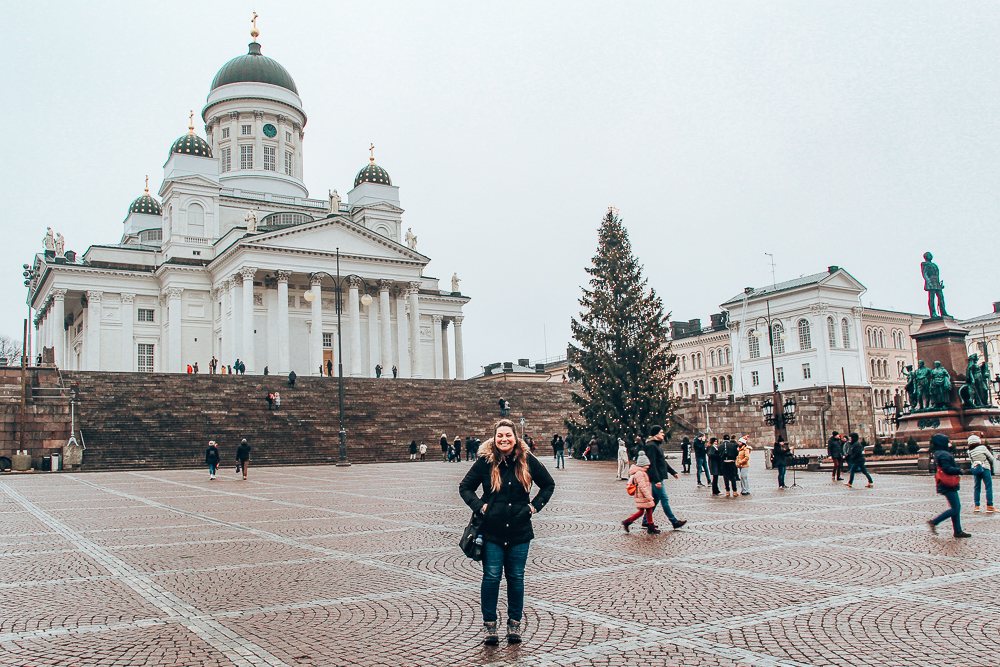

Here are some must-see sites in Helsinki:
- Senate Square
- Helsinki Cathedral
- Market Square
- Esplanadi
- Suomenlinna
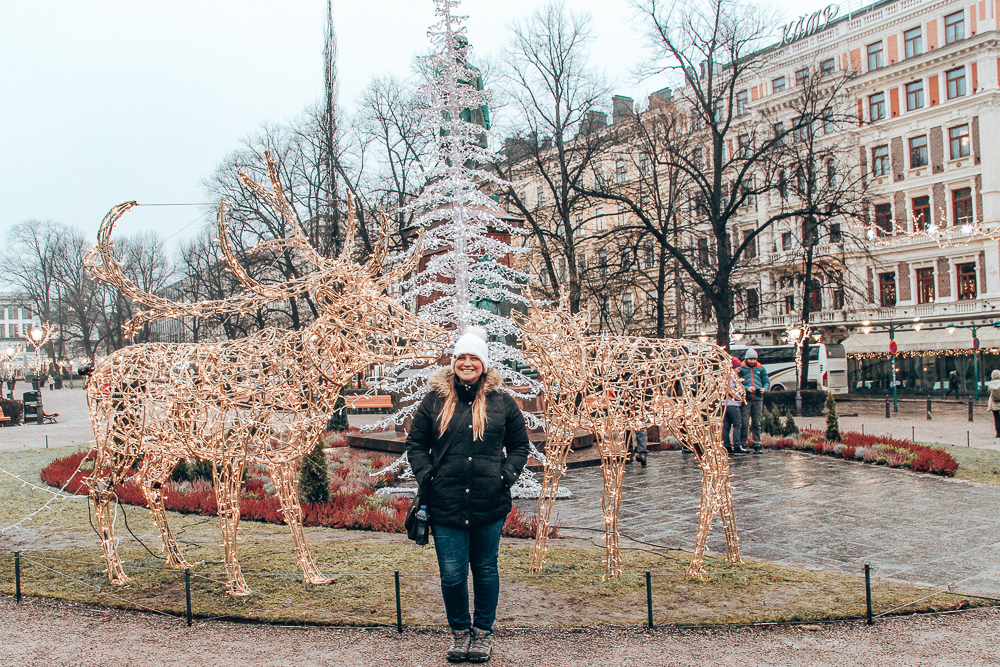
Suomenlinna can only be reached by a 15-minute ferry ride. The island is quite beautiful, and worth visiting if you come here for your day trip.

If you go during the winter you can do a fun activity and hunt for gnomes all over the island. You get a prize if you find all of them! Check in at the visitor’s center for a map before you begin wandering.
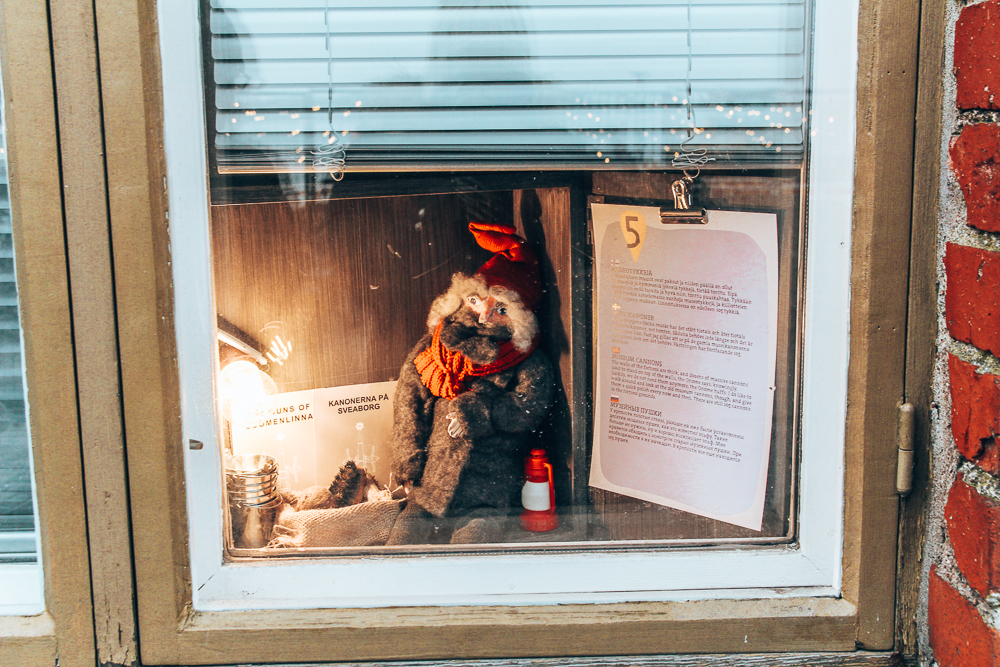
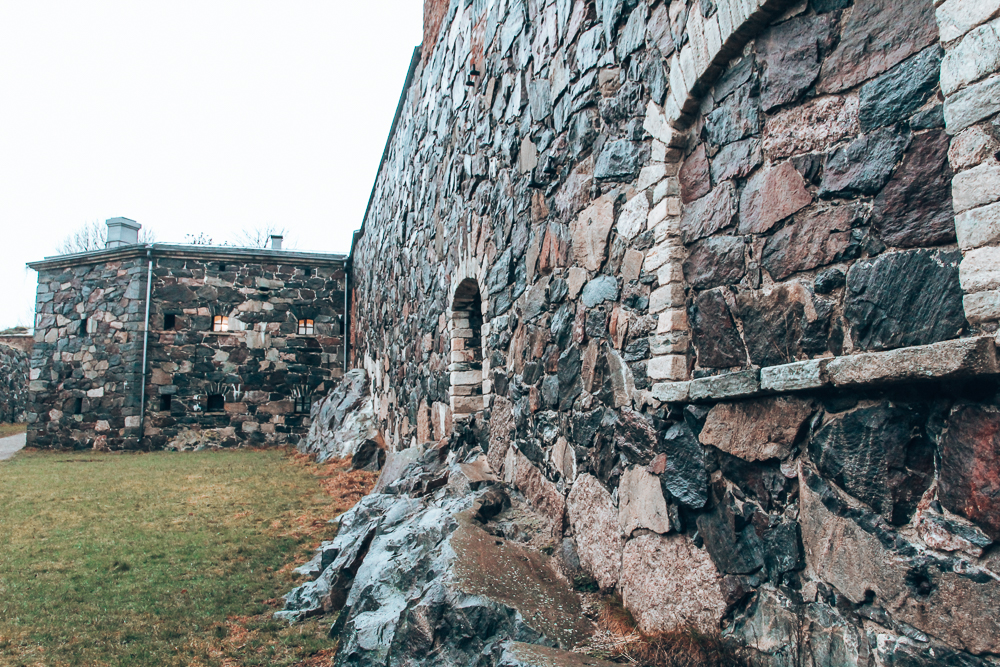
Other Options for Day Trips
If Helsinki doesn’t appeal to you for a day trip, check out these other options for day trips from Tallinn.
10 Day Baltic Itinerary Day 5-7: Riga
Next on your Baltic itinerary is Riga.
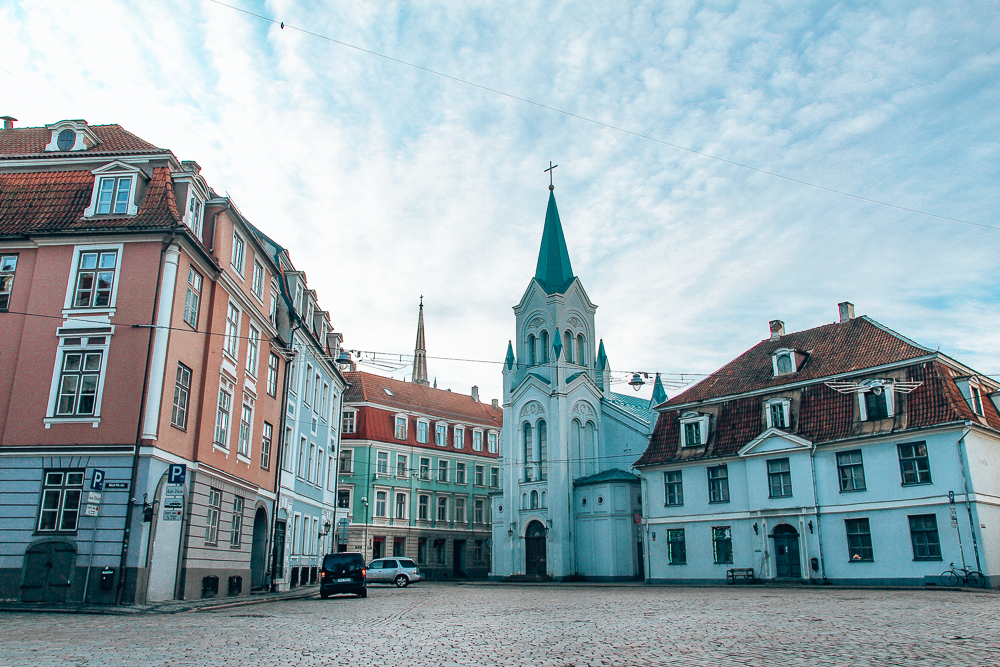
I found Riga to be even more beautiful than Tallinn, but I know a lot of people disagree.
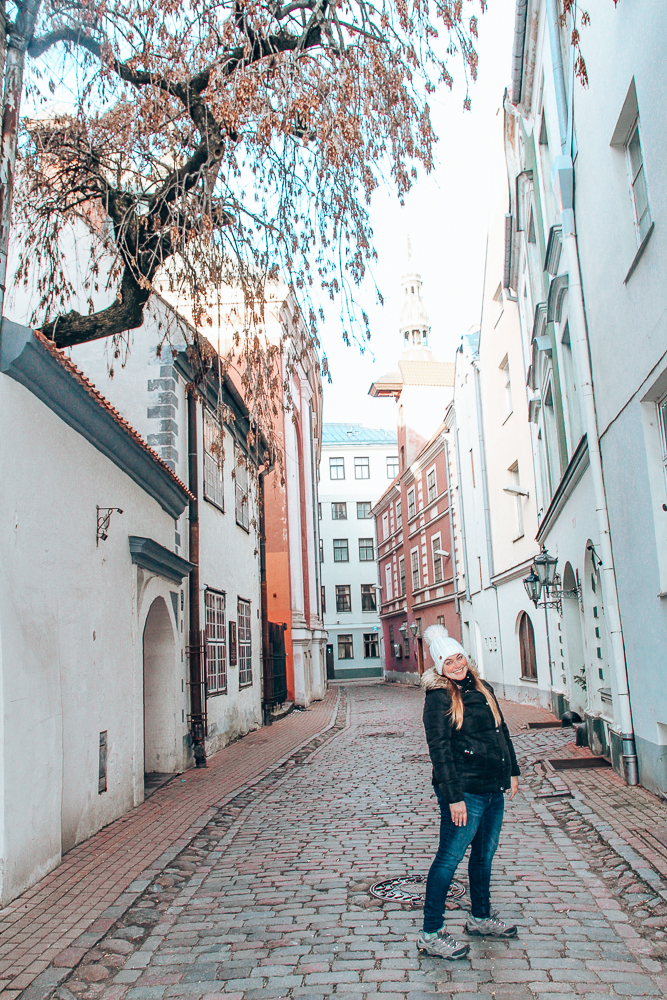
The city felt a bit rougher, a bit more real. There were a lot more shops and restaurants and bars in the city. And people seemed a lot friendlier, shopkeepers went out of their way to make conversation with us.
Depending on your mode of transportation, you will probably get into Riga in the afternoon or evening. Download the Bolt app for a ride from the airport. Just like in Tallinn, don’t feel like you have to rush, take a walk around the Old Town, stretch your legs, and grab a bite to eat.

Where to Stay in Riga
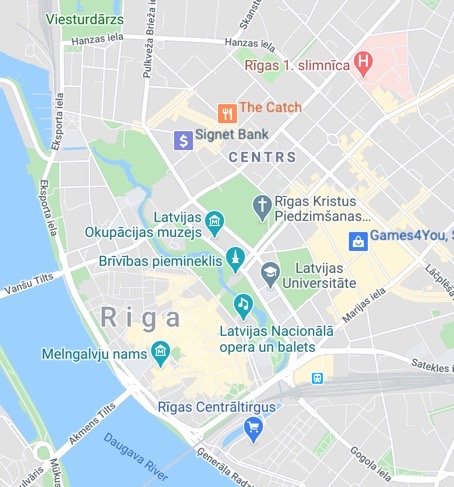
Try to get a hotel close to the Old Town.
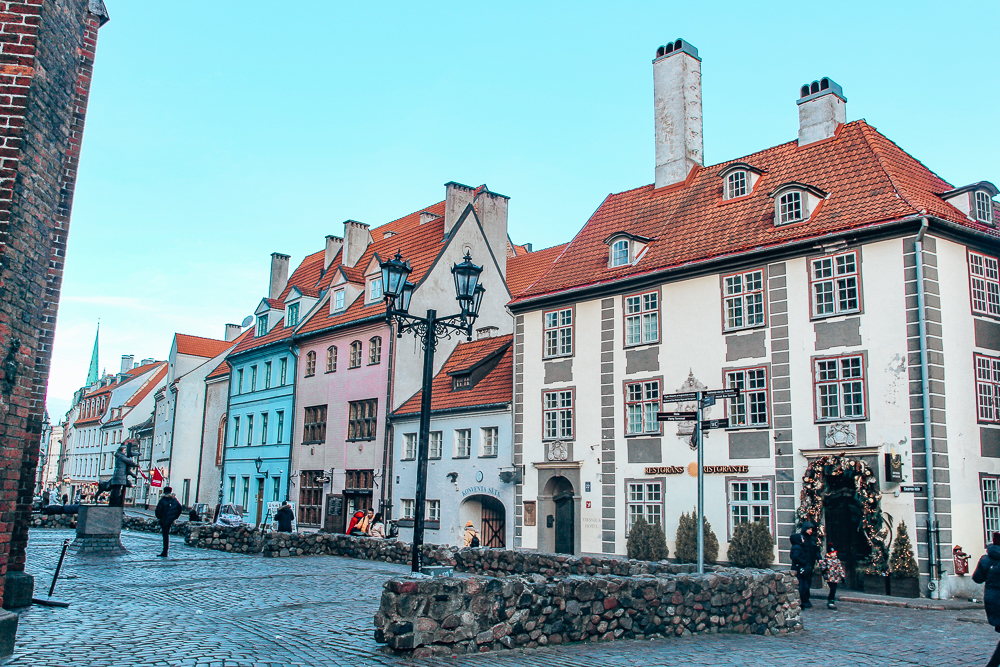
We stayed in the Gogol Park Hotel, which was about a 15-minute walk to the center. We didn’t mind the walk, and the hotel was very nice, with free parking
See the Main Sites
You can take another free walking tour or wander on your own to see the main sites.
This walking tour company is pretty neat because there are two options, one option will show you the main areas in Riga, and the other tour will lead you to “the real Riga” You will go to places like the Riga Central Market, Moscow district, and Warehouse District.
Take Some Awesome Pictures in Vecriga
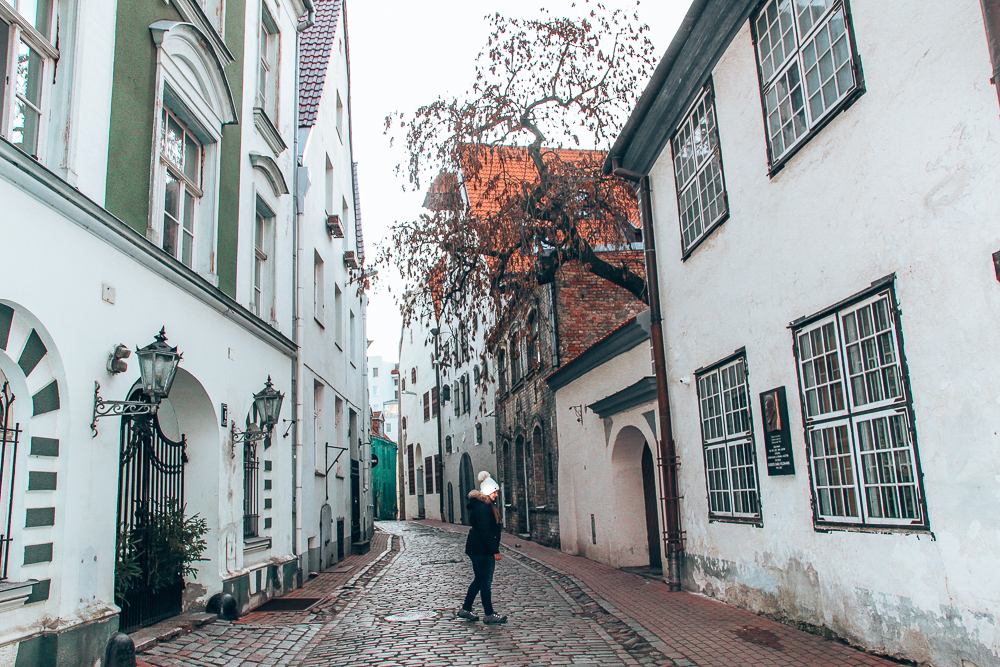
Wander around this UNESCO World Heritage Site and admire all of the beautiful homes, little shops, and cobblestoned streets. The best time to see the side streets of Riga Old Town is first thing in the morning. The streets are blissfully empty and you feel like you’re in a fairytale with all of the beautiful colored buildings and cute nooks and crannies and side streets.
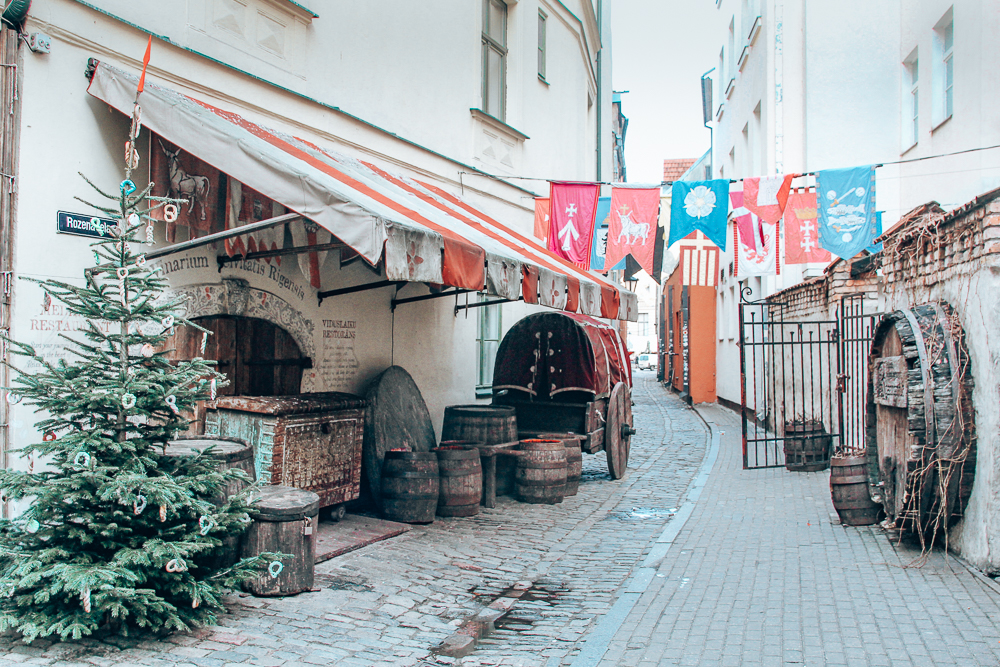
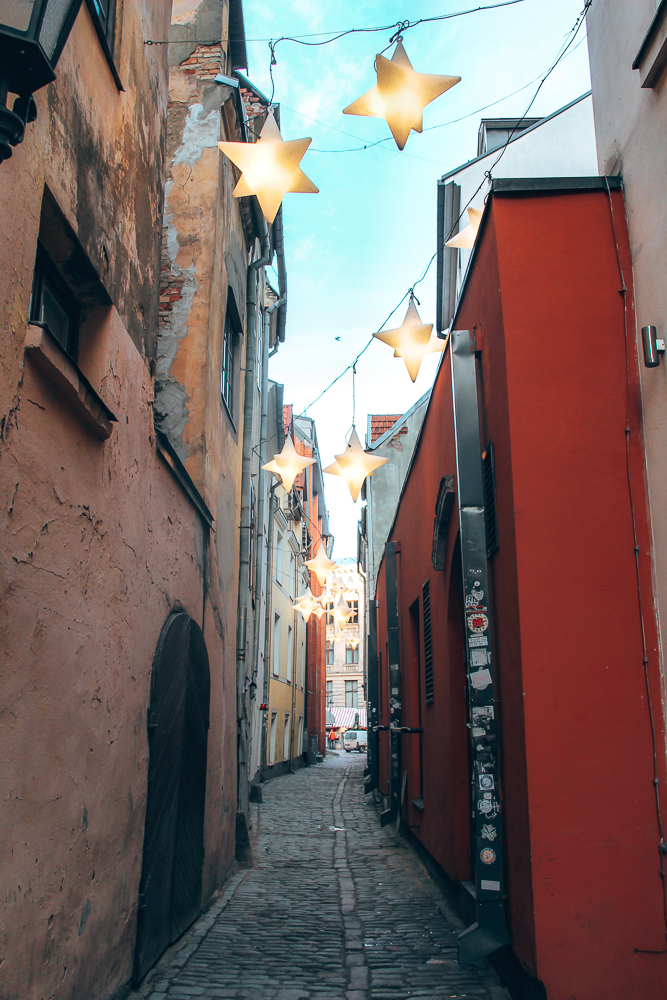
Once you wander a bit, make your way to some of the famous sites. If you didn’t have the chance to take a walking tour, that is.
Here is a wonderful self-paced tour that will allow you to see most of the main sites in the city!
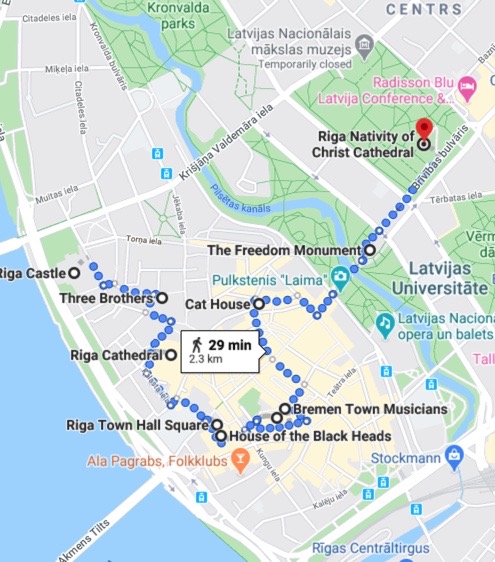
- Riga Castle
- Three Brothers
- Riga Cathedral
- Riga Town Hall Square
- House of the Black Heads
- St. Peter’s Church
- Bremen Town Musicians
- Cat House
- Freedom Monument
- Riga Nativity of Christ Cathedral
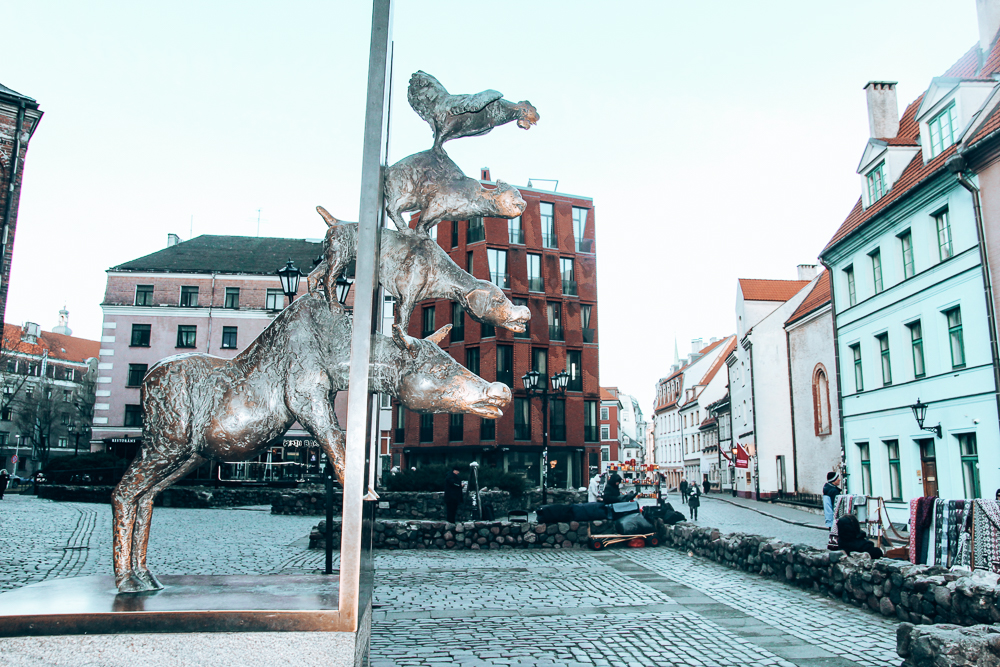
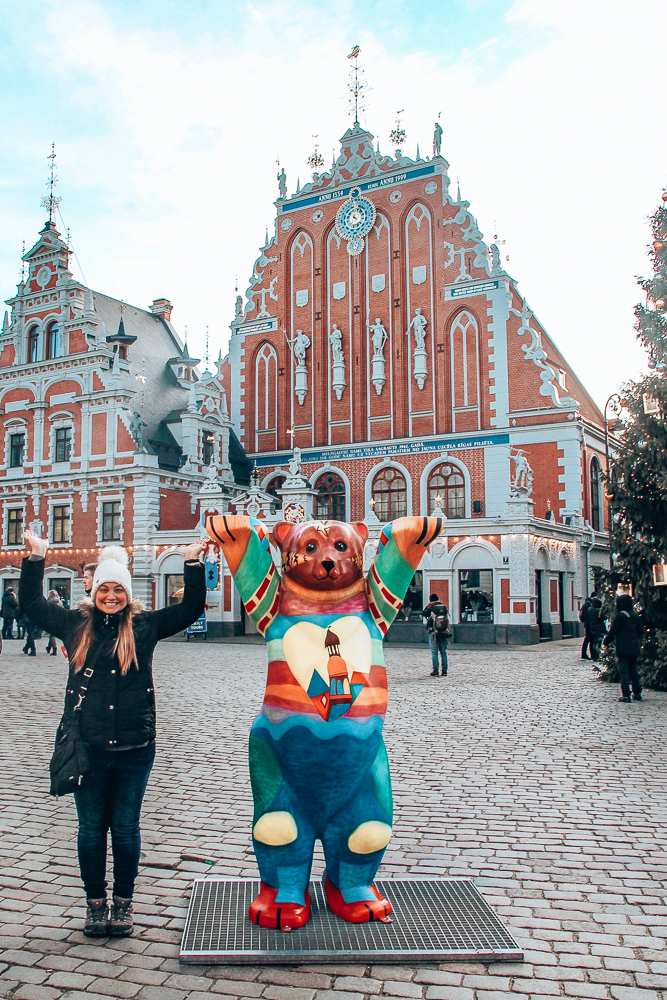
Museums
If you still have some time, check out one of the numerous museums in the city. My favorites include the KGB building, Musee Art Nouveau, and the Latvian Ethnographic Open Air Museum.
Others include Riga Ghetto and Latvian Holocaust Museum, Riga Motormuseum, the Museum of the Occupation of Latvia, and Latvian National Museum of Art, and so many more.
Christmas Market
The Christmas markets in Riga are also quite beautiful. There are markets at Cathedral Square, Kalnciema Quarter, Esplanade Park, Riga Central Market, and Livu Laukums.

Livu Laukums was the only Christmas market open when we visited. There was food, trinkets, and jewelry, and clothing.
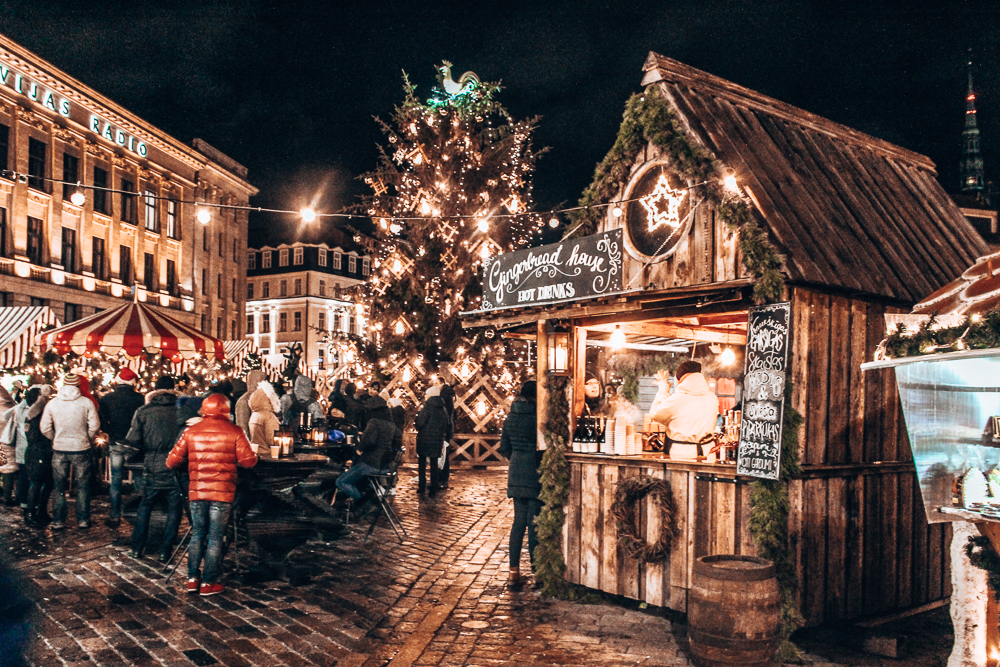
Optional Day trip to Kemeri National Park
Before we left for Lithuania, we decided we wanted to see a bit of the countryside on the Great Kemari bog walk in Kemeri National Park.

The Loop itself is about 3.1 miles. The scenery is quite startling. There is not a lot of vegetation or plant diversity, but it is still so beautiful.
If you want to make a whole day of the bog, or don’t have a car, check out this company that promises a 7-hour tour including the bog and other natural wonders around Latvia.
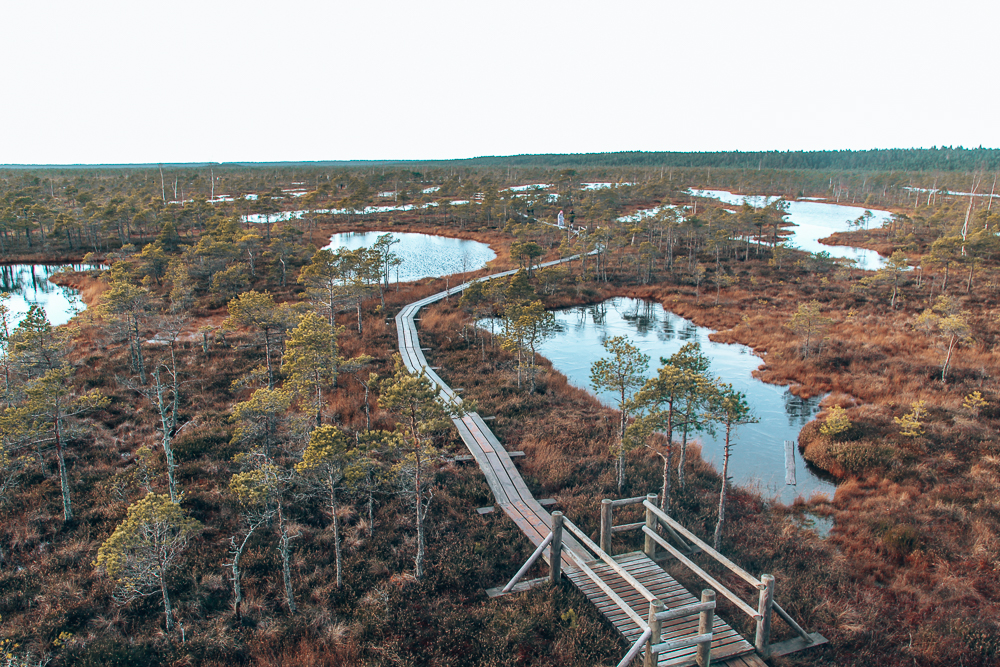
Options for Day Trips
If Kemeri National Park isn’t your thing, check out these other options for day trips from Riga.
10 Day Baltic Itinerary Day 8-10: Vilnius
The last few days of your Baltic itinerary will be spent in Vilnius.

Lithuania holds a special place in my heart. Perhaps because on my mom’s side, my grandmother’s parents, and grandfather’s grandparents, were both from Lithuania.
My 23 and me results declare me to be about 30% Lithuanian. It seems strange that in another life, I may have been raised in Lithuania.
The people in Lithuania are strong, with big eyes and strong features. They are quite reserved, and can appear standoffish, but I found them to be super helpful, and nice when I asked a question or made polite conversation.
Arriving in Vilnius
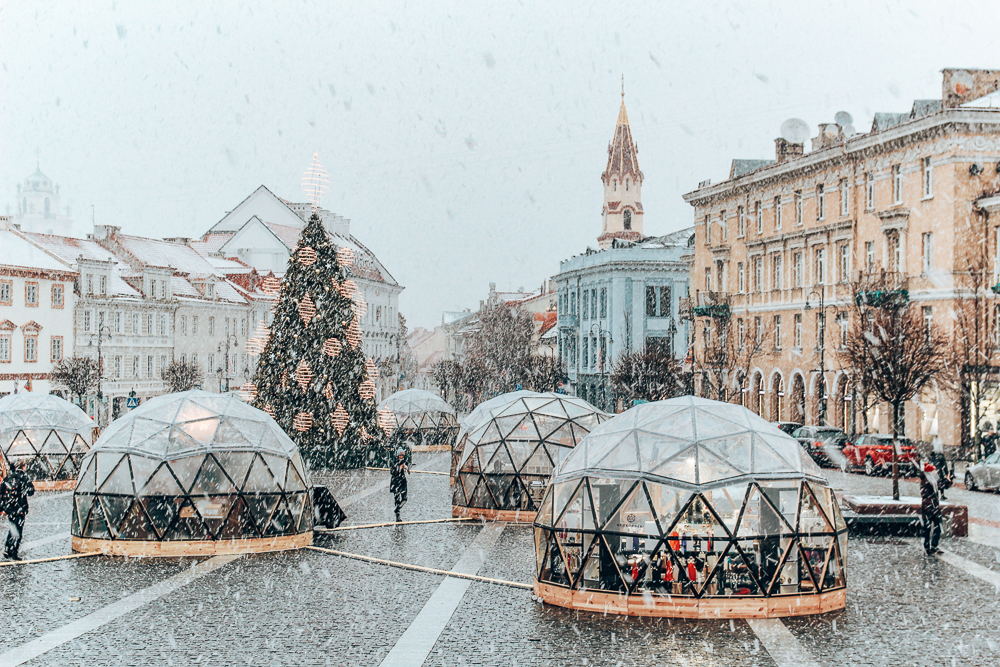
We decided to take a bus from the airport to the Old Town. It only costs 1 euro (you can pay the driver when you get on) and takes you right to the old town. Take bus #88 from the airport and the stop is Aušros vartai or Trakų stops.
You can also call an Uber. I would avoid the taxis but if you have to take one, agree on a price beforehand.
Where to Stay
Try to stay in the Old Town of Vilnius.
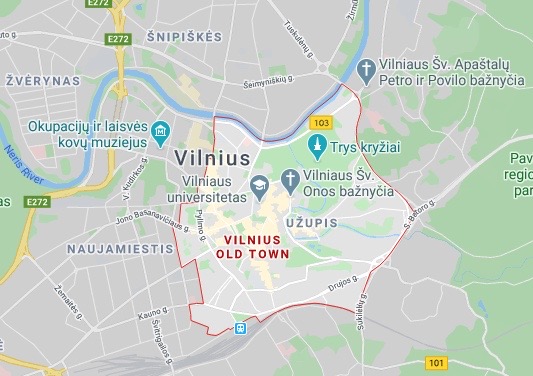
We stayed right near the Gate of Dawn in a former monastery called the Domus Maria Hotel. It was quite a nice experience.
Vilnius Free Walking Tour

We started our time in Vilnius with a free walking tour. This company has two tour options. The Old Town Tour and the Undiscovered Tour. We took the Old Town tour since it was our first time in the city.
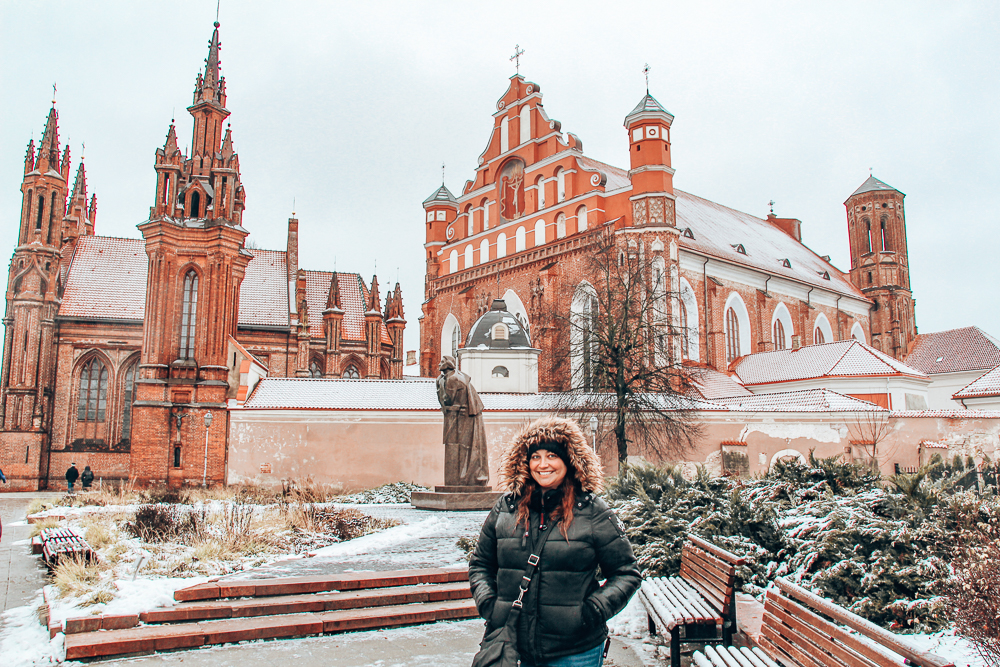
From their website, the Old Town Tour promises the following sites:
- Cathedral Square and its surroundings
- Vilnius University
- The presidential palace
- The Town Hall and its surroundings
- The Republic of Užupis
- St Anne’s and Bernardine churches, the gothic corner of Vilnius
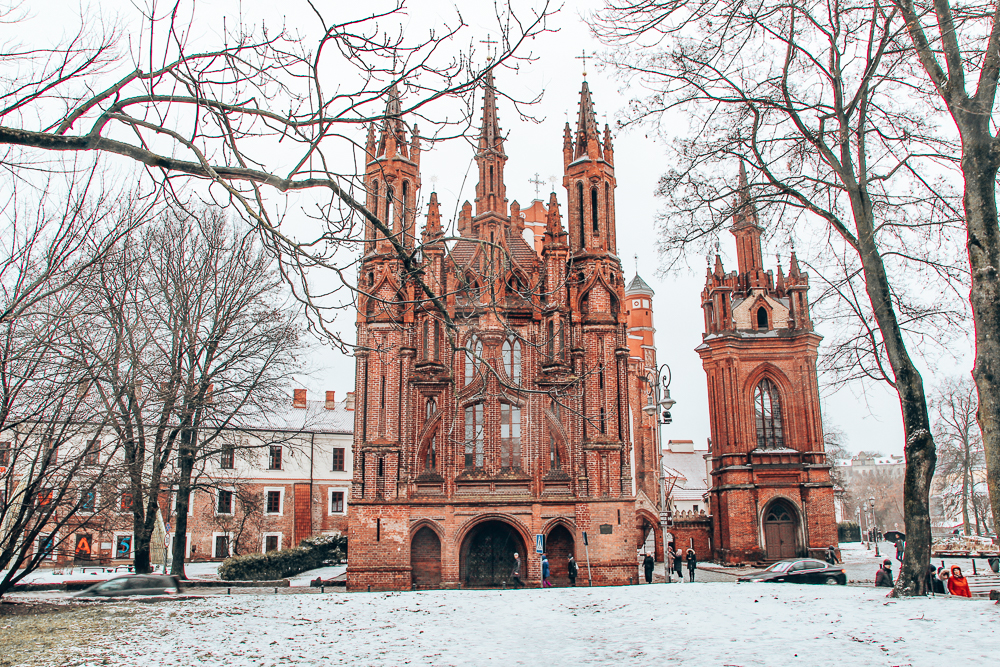
The tour takes about 2.5 hours, remember to tip your guide! If you decide to skip the walking tour, make sure you don’t miss the sites above!
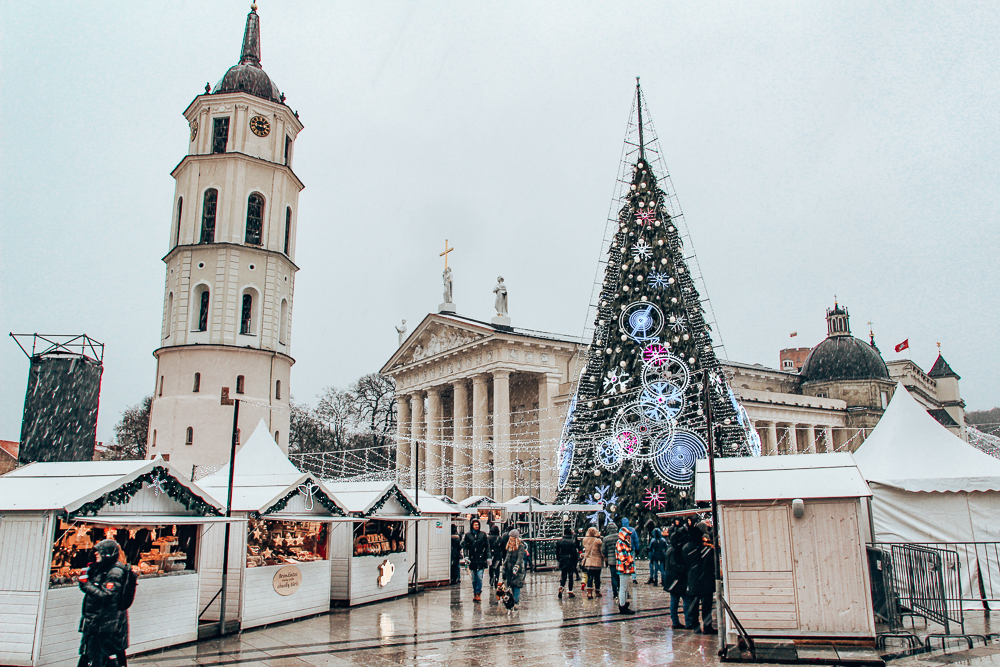
Other Sites to See
Don’t miss the Gate of Dawn. Legend has it that the painting of the Virgin Mary comes to the protection of the people of Lithuania when they need her.
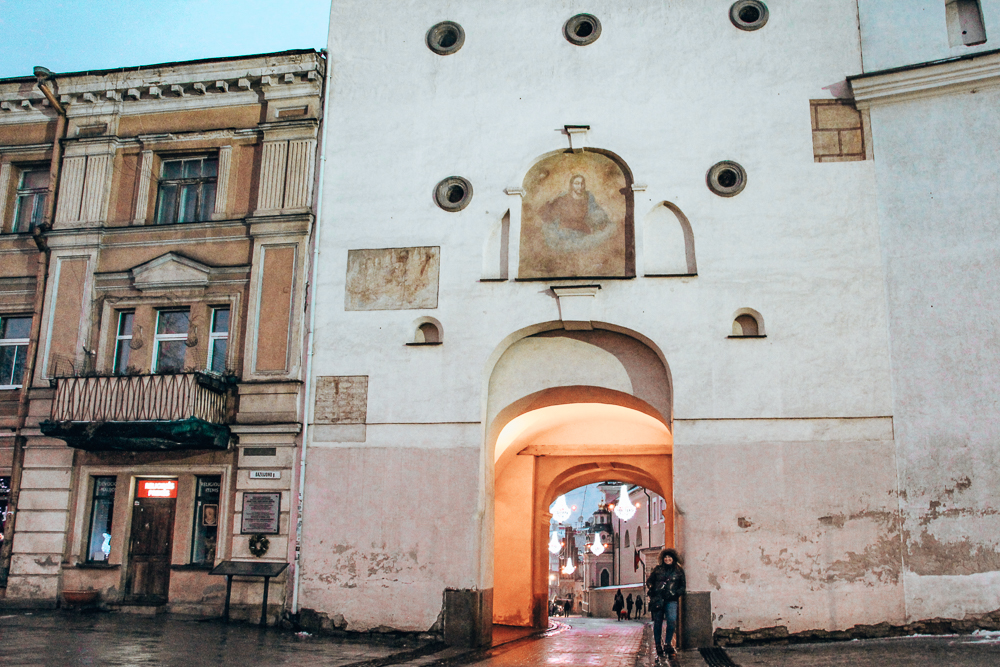
If you want a great view of the city, hike up to the Three Cross Memorial. You will get an amazing, panoramic view of the whole city. The hike to Gediminas tower is also nice, but the view is not quite as good.
The Church of St. Peter and St. Paul is touted as one of the most beautiful Catholic churches in the world. The inside of the church is filled with over 2,000 statues!
If you’re interested in visiting churches, there is an abundance of them in the city, click here to see 28 churches in Vilnius Old Town.
Museums in Vilnius
I am not a huge fan of museums. But the Museum of Illusions does look pretty interesting! Enjoy illusions of all kinds as you wander through this funky museum.
Here is a list of all the museums you can enjoy in Vilnius!
Pilies Street
Visit Pilies street for some arts and crafts, and maybe even a local festival. The street is beautiful with a mix of Renaissance and Baroque architecture.
Cathedral Square, City Hall, and Bernardinai Gardens Christmas Markets
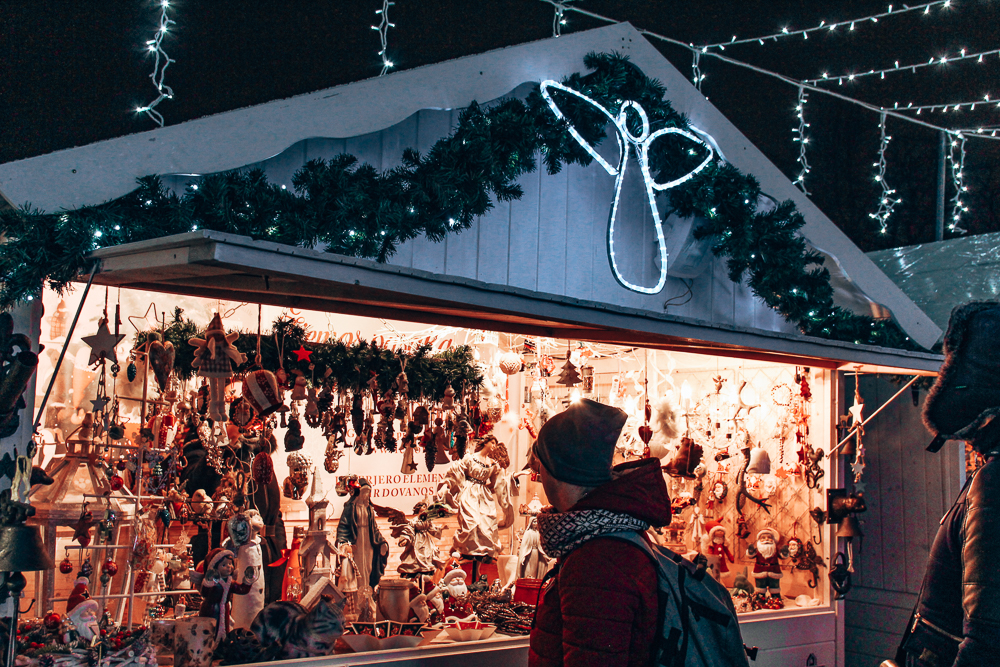
These Christmas markets go until Epiphany, so even if you visit Vilnius the first week of January the markets will be open.
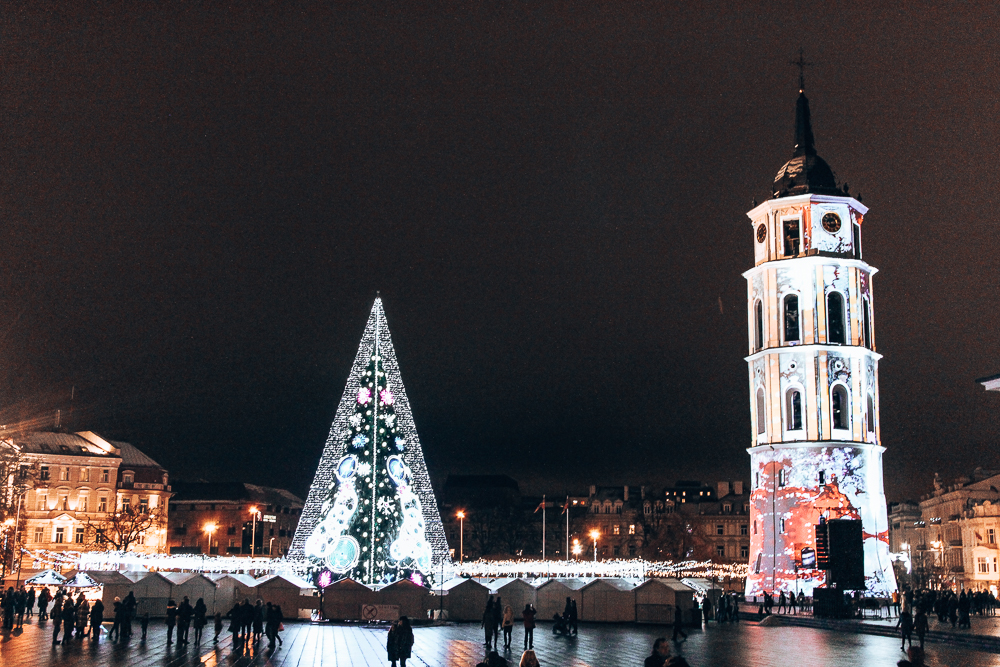
The decorations are festive, the food is great, and there are lots of goods to buy in these markets.

The Republic of Uzupis
Spend some more time in Uzupis. The Republic started as a joke and is now considered to be the smallest republic in the world. It covers about 1 square km, but there is a president, government, and constitution.
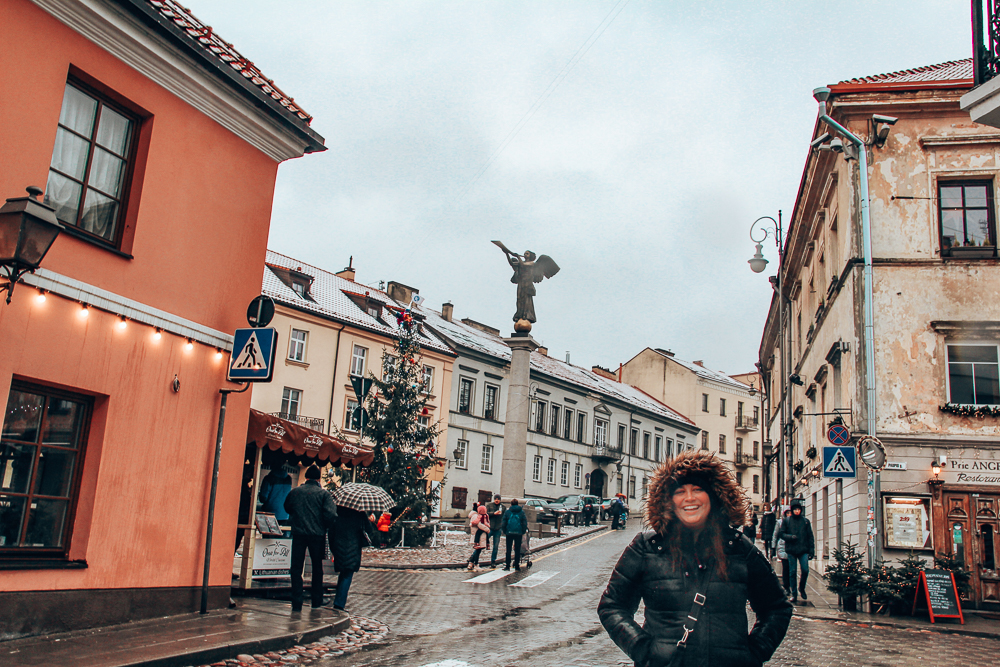
The constitution hangs on the wall and includes clauses like “everyone has the right to be happy” and “a dog has a right to be a dog.”
It is an artist’ community where you can see interactive artwork, and interesting sculptures.
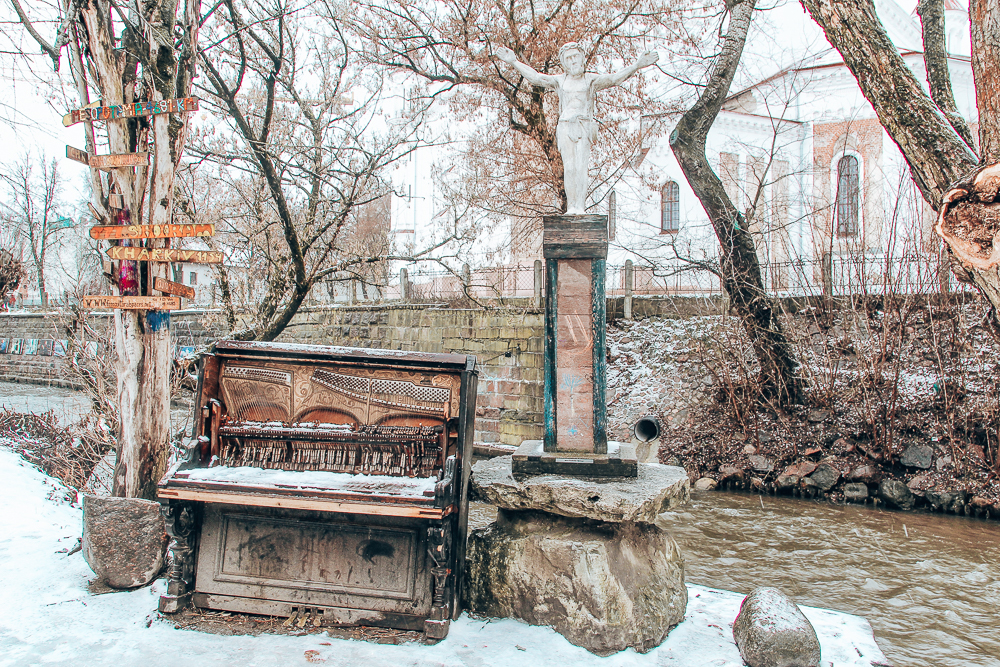
People seem happy here, and very loving.
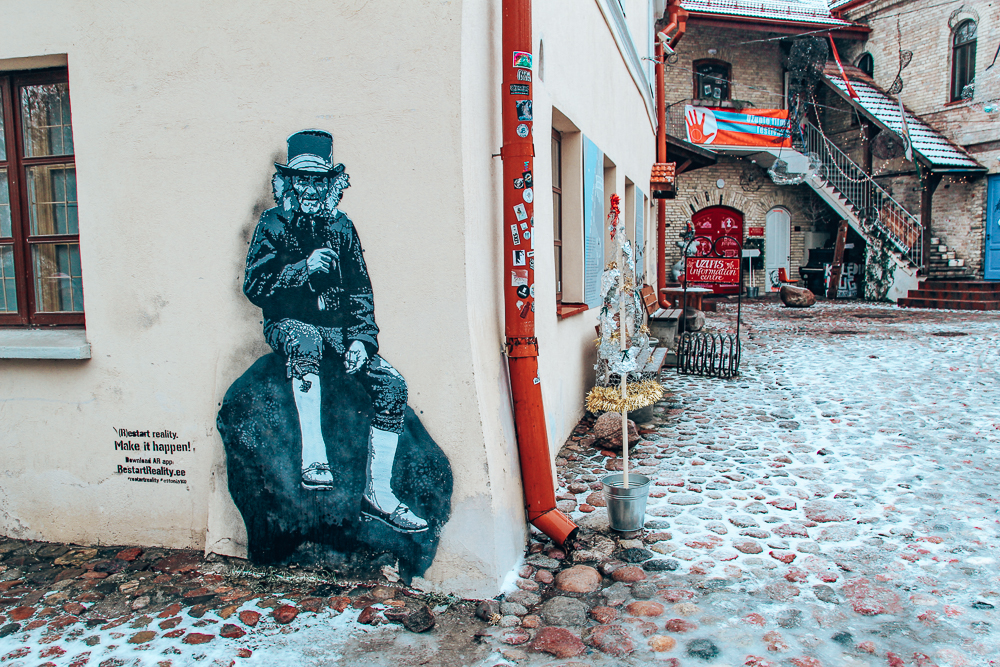
Optional Day trips
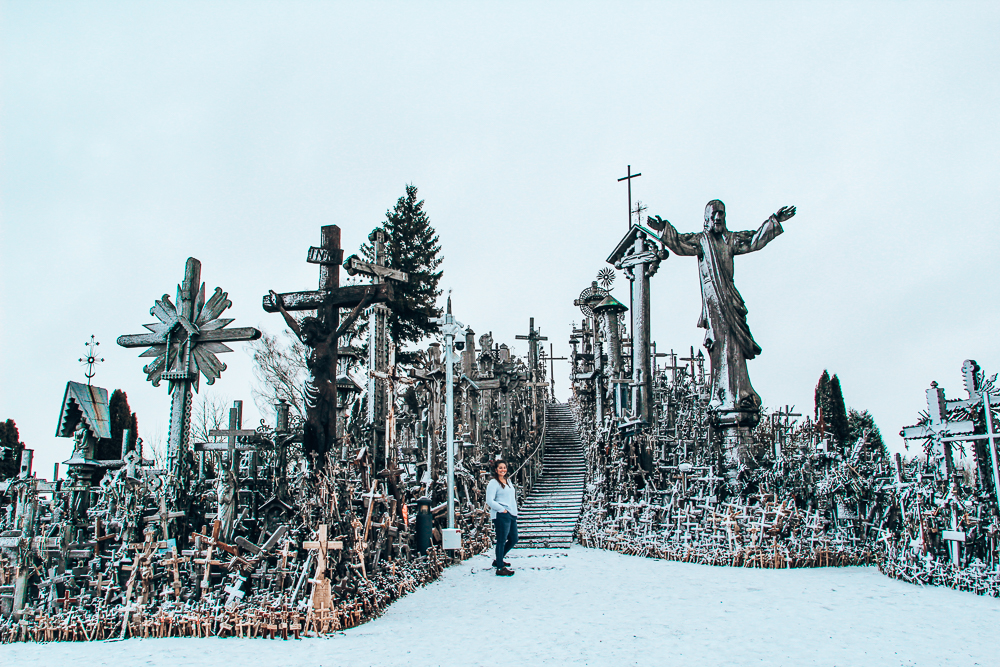
Trakai Castle
This attraction is located about 45 minutes outside of Vilnius. To get here you can drive, take a bus, or take a train. Check Rome2Rio to see bus numbers and train options!
Perhaps the most popular day trip from Vilnius is Trakai Castle. There is a beautiful park, and you can see the castle on the island.
Panamune Road and Castles
If you love castles, think about taking a drive on Panamune Road. You will stop at Raudondvaris, Raudone, and Panemune castle. You may need a car for this one, but some tour companies add the castle to other popular itineraries!
Hill of Crosses
When we visited Lithuania, we did Hills of Crosses, Ninth Fort, Kaunus, and the Devils Museum all in one day.
The Hill of Crosses is by far my favorite. The atmosphere is melancholy. And the chimes of rosary beads in the wind is quite haunting.

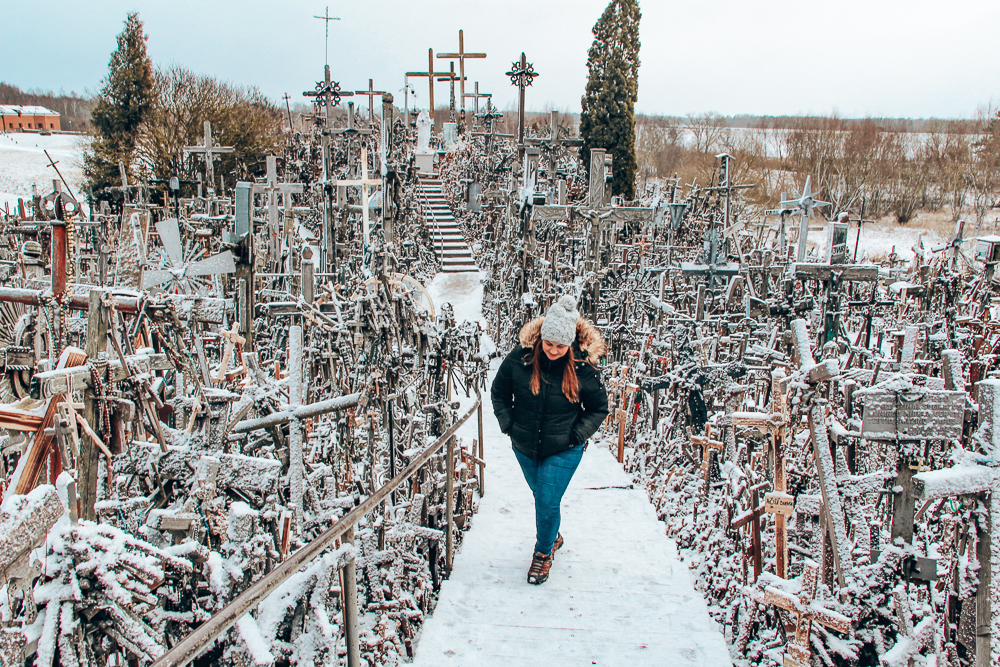
I highly recommend seeing the Hill of Crosses when you are in Lithuania. You can check out Viator for tour options from Vilnius if you do not have a car.
Ninth Fort
Ninth Fort is right outside the village of Kaunus. It is a memorial for the Jews who lost their lives here during several mass shootings in 1941. Tour groups that offer trips to Kaunus usually stop by Ninth Fort, so even if you don’t have a car you can still see this place.
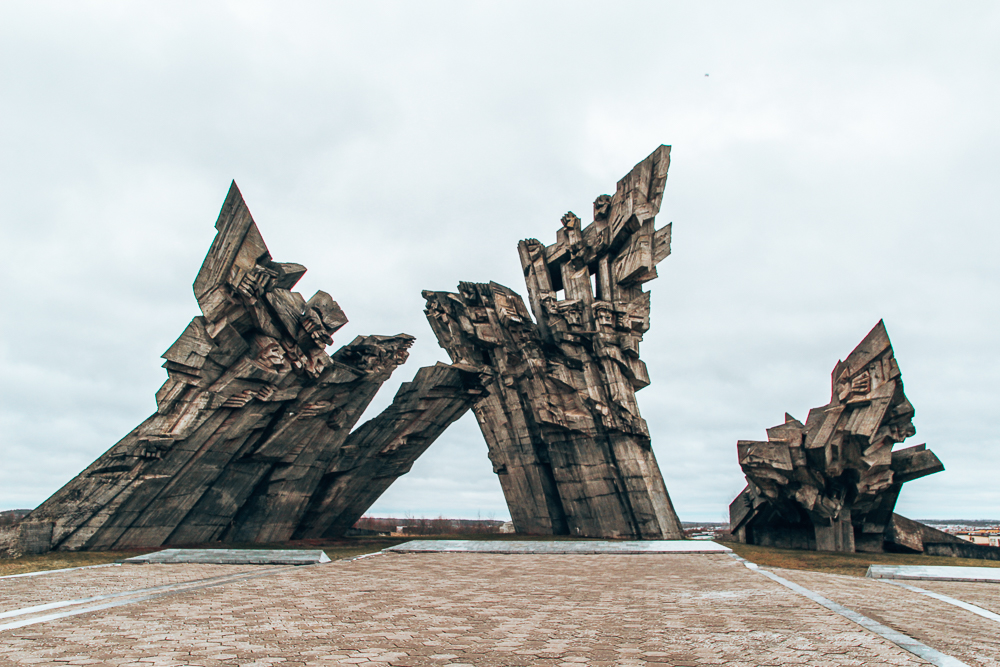
You can see the sculpture, the memorial to all of the Jews who died. You can also visit the museum, which covers history about the Nazi and Soviet occupation in Lithuania.
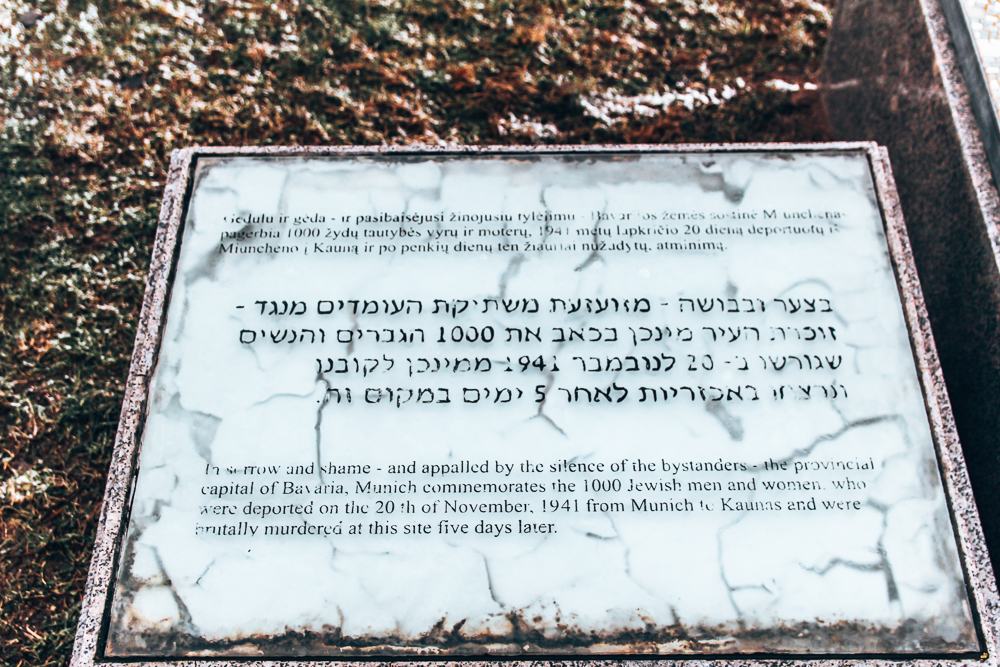
Kaunus/Devil’s Museum
Kaunus is a cool little city that was dressed up prettily with a Christmas market when we visited.
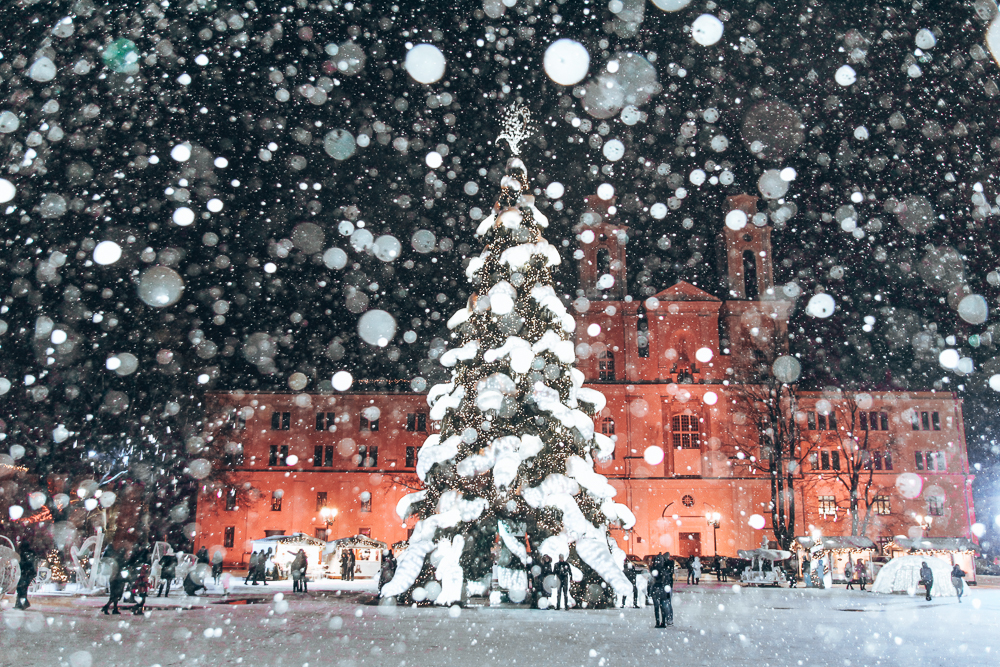
Wander around the square, find some great street art, and grab a bite to eat.
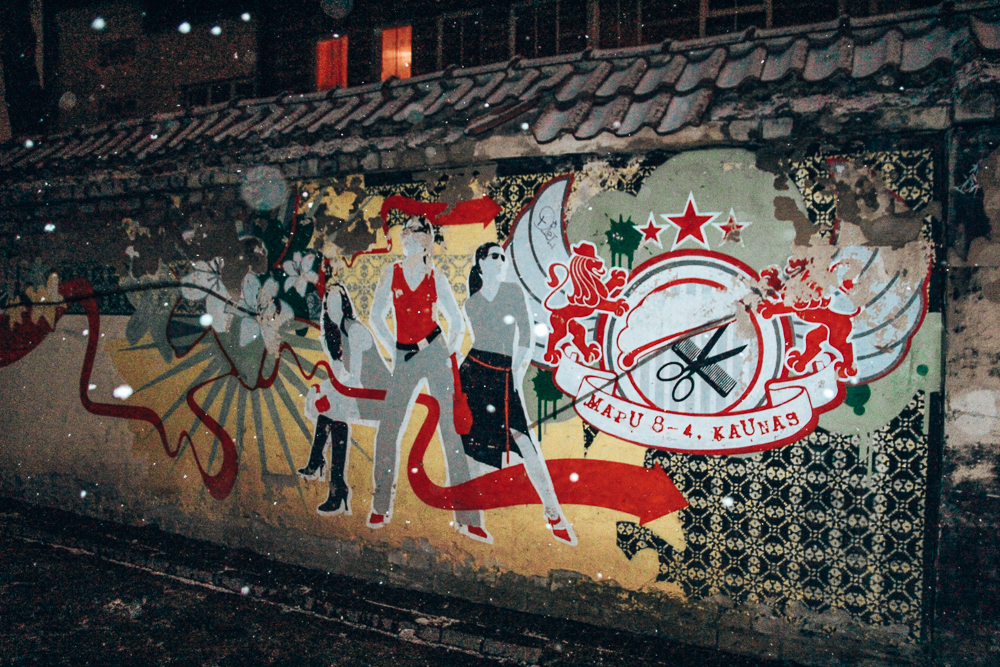
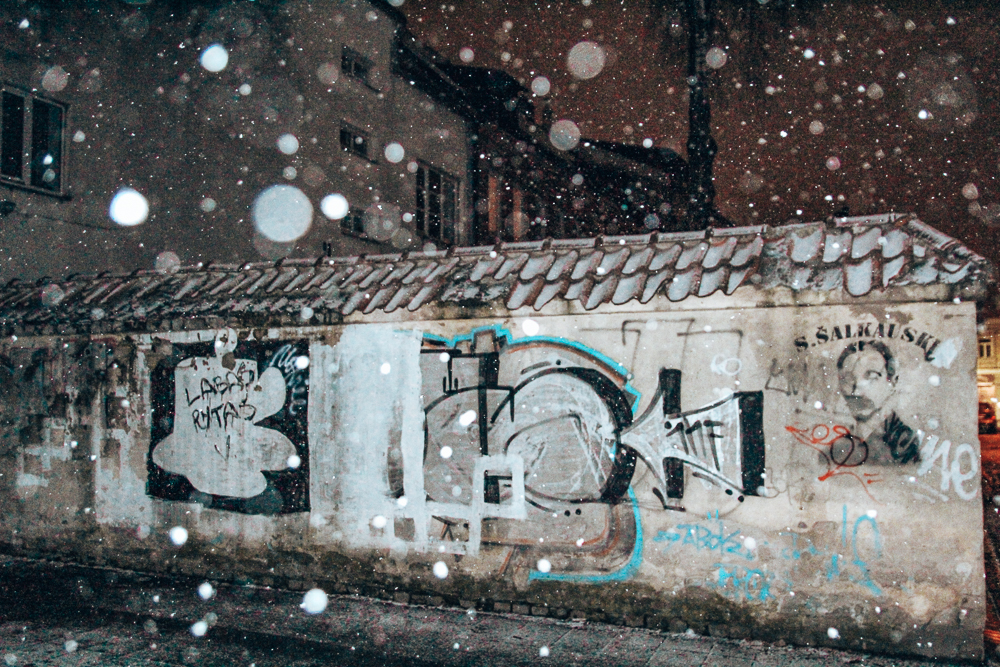
I recommend Etno Dvaras for some traditional Lithuanian food.
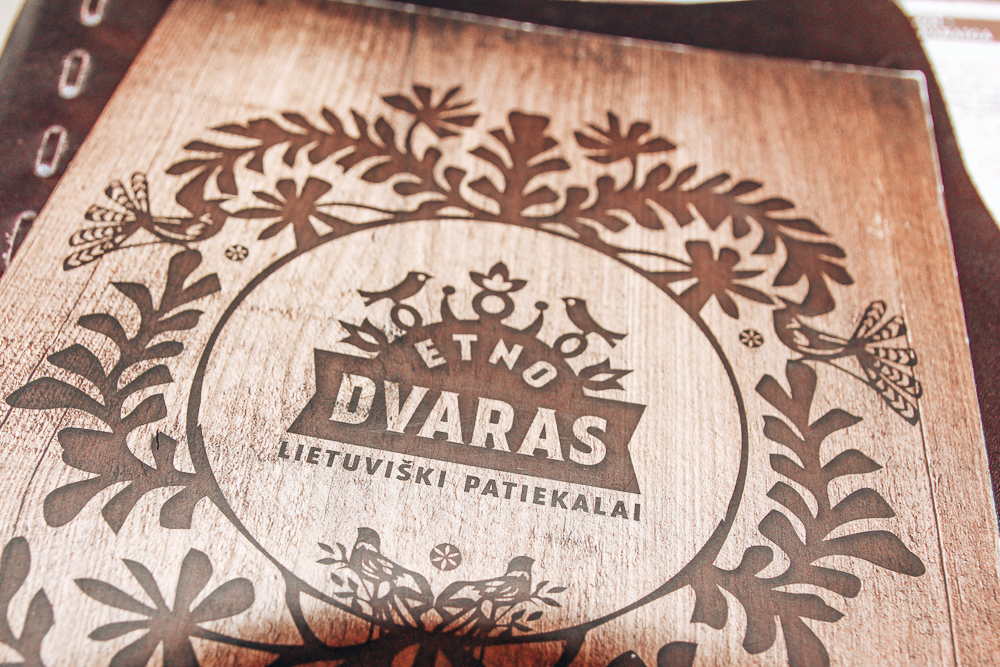
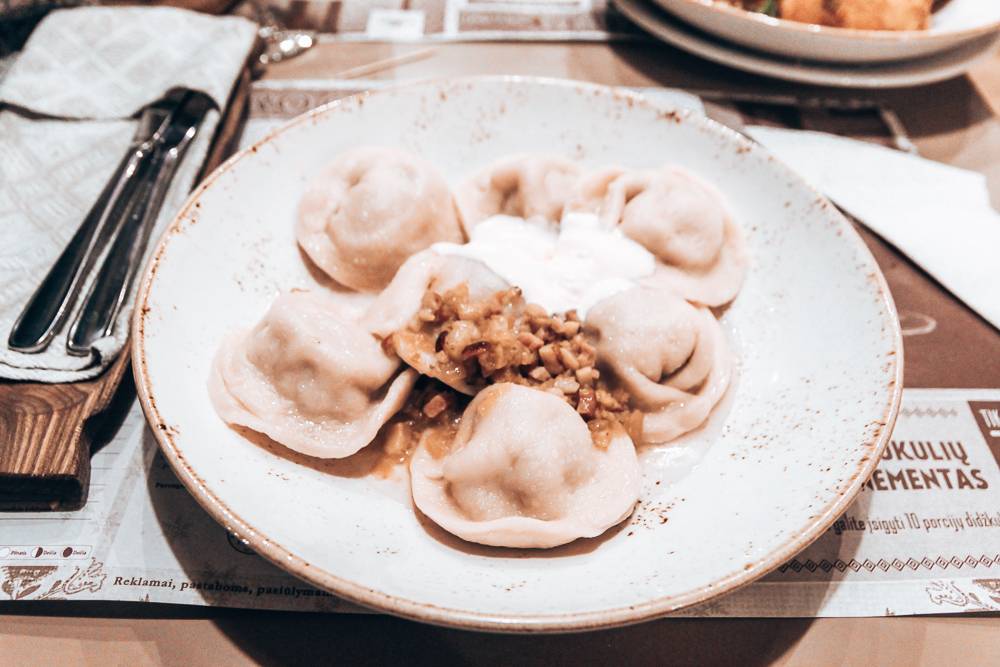
We had traditional Lithuanian food, and it was warm and filling!
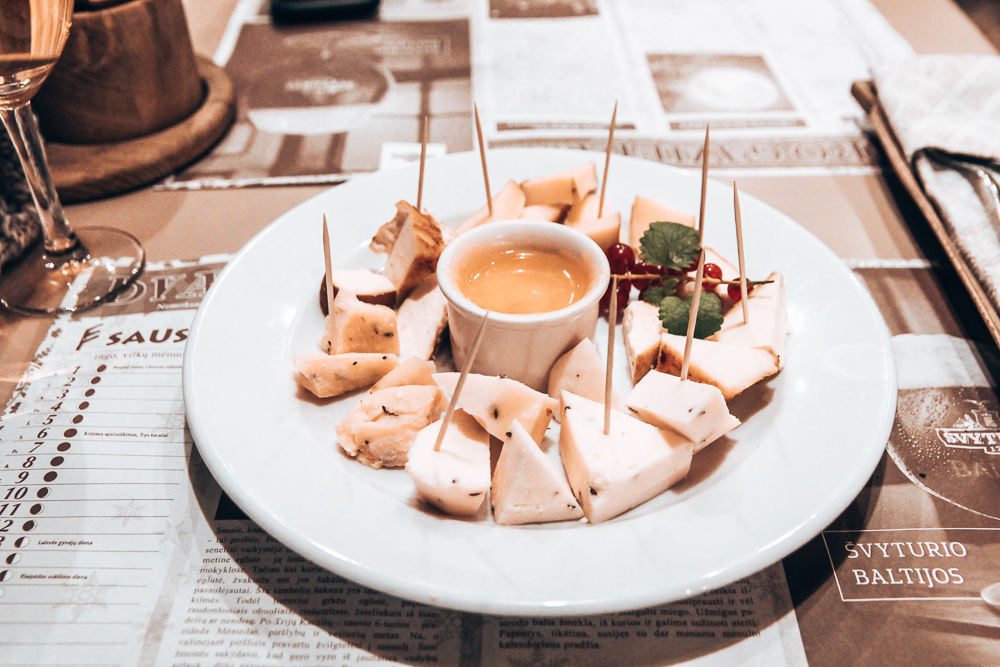
While you’re in Kaunus stop by the Devil’s museum. You’ll experience a bit of folklore from around the world.

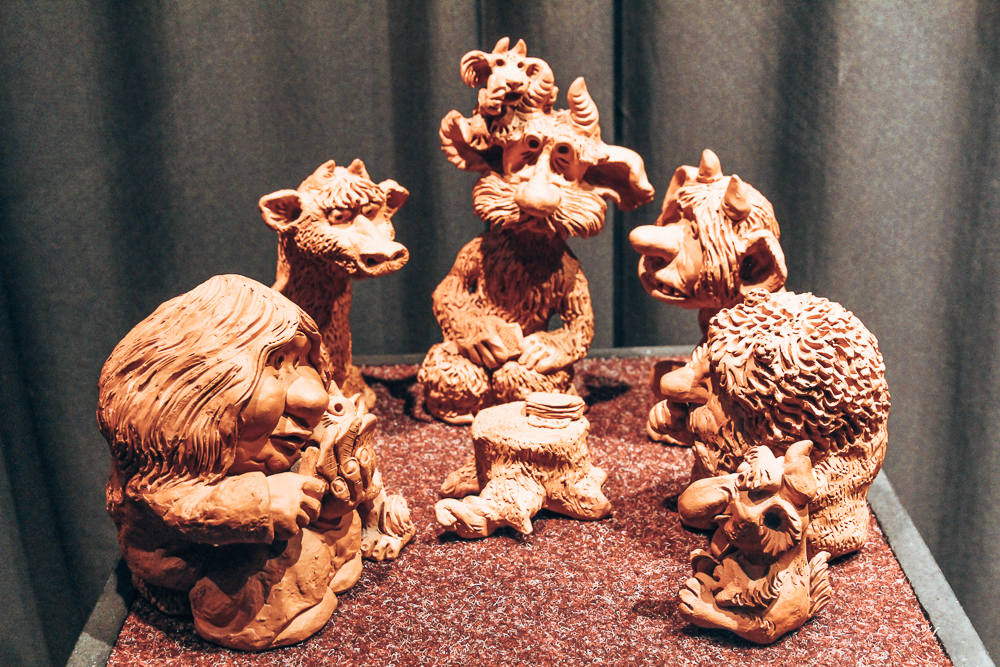
Witches Hill
Lithuania was the last pagan country in all of Europe. This sculpture garden shows off beautiful creatures, fairy beings, and witches from Lithuanian folklore. If you go on a longer, guided tour this may be included, otherwise you need a car.
Grutas Park
Another sculpture garden, this one with Soviet-era statues.
There is a small entrance fee to the park. If you go on a longer, guided tour this may be included, otherwise you need a car.
Other Optional Day Trips
If these options don’t appeal to you, check out these other ideas for day trips from Vilnius.
Final Thoughts on this 10 Day Baltic Itinerary
The Baltic countries are so wonderful, and filled with so much to do. I hope you enjoy your trip to this magical part of the world!
Disclosure: I only recommend products and services that I have used myself, and that I would recommend to a friend. Some of the links in this article are affiliate links. Meaning, at no additional cost to you, I will earn compensation if you click through and make a purchase.
Love this post? Pin it!

